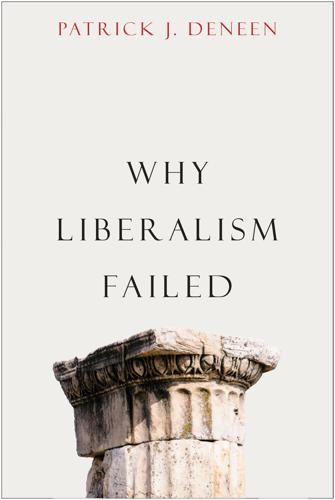
Why Liberalism Failed
by
Patrick J. Deneen
Published 9 Jan 2018
There were plausible grounds why, in 1989, Francis Fukuyama could declare that the long debate over ideal regimes had ended, and that liberalism was the end station of History. Liberalism did not, of course, discover or invent the human longing for liberty: the word libertas is of ancient origin, and its defense and realization have been a primary goal from the first forays into political philosophy in ancient Greece and Rome. The foundational texts of the Western political tradition focused especially on the question how to constrain the impulse to and assertions of tyranny, and characteristically settled upon the cultivation of virtue and self-rule as the key correctives to the tyrannical temptation. The Greeks especially regarded self-government as a continuity from the individual to the polity, with the realization of either only possible if the virtues of temperance, wisdom, moderation, and justice were to be mutually sustained and fostered.
…
Those inclined to deracination, rootlessness, materialism, risk taking, dislocating social change, and inequality in effect assured their own success, even as they appealed to the system’s likely losers by emphasizing the injustice of aristocratic orders. John Locke made clear that the new political and economic system he proposed in his Second Treatise of Government, liberalism’s foundational text, would result in a different ruling class. In one of its key chapters, “Of Property,” he divided the world into two sorts of persons: the “industrious and the rational” and “the querulous and contentious.” In the world of prehistory, he wrote, both kinds of characters might have existed in some number, but a subsistence economy marked above all by absence of private property made it impossible to tell them apart.

The Wondering Jew: Israel and the Search for Jewish Identity
by
Micah Goodman
Published 10 Nov 2020
Just as every few generations Jewish history throws up an alternative religious movement to the dominant religious stream, so now we are beginning to see the emergence of another form of secularism, an alternative to the central stream of Jewish secularism. Secularism is a mindset of sovereignty. Secular people consider themselves to have complete sovereignty over their own lives. And this might lead to a surprising conclusion: as secularism becomes more Jewish, it also becomes more secular. Secular Jews who study the foundational texts of the Jewish tradition do not limit their personal sovereignty; they enhance it. They apply their own sovereignty to the Jewish tradition. This important reversal can also be seen in the sharp words of one of the founding thinkers of Israeli secularism, Berl Katznelson: “A renewing and creative generation does not throw the cultural heritage of ages into the dustbin.
…
For a comprehensive and exhaustive summary of the history of the term “postmodernism,” see Steven Best and Douglas Kellner, The Postmodern Turn (New York: Guildford, 1997); Steven Best and Douglas Kellner, Postmodern Theory: Critical Interrogations (New York: Guildford, 1992). For the main thinkers of postmodernism, see Michael Drolet, ed., The Postmodernism Reader: Foundational Texts (London: Routledge, 2004). For its philosophical roots, see Drolet’s introduction (13–17). PART I INTRODUCTION 1. David Ben-Gurion, “The Imperative of the Jewish Revolution,” in In the Campaign [Bama’archa], vol. 3 (Tel Aviv: Am Oved, 1957), 197–211 [Hebrew]. 2. Ehud Luz has shown that the Uganda debate was, among other things, about precisely this question.
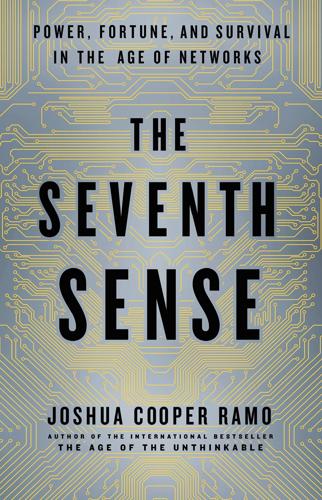
The Seventh Sense: Power, Fortune, and Survival in the Age of Networks
by
Joshua Cooper Ramo
Published 16 May 2016
With subject lines such as “Understanding This Chinese Generation” or “Master Nan Answers Questions about Chinese and Western Knowledge,” they were real-time maps of the usually invisible dance our daily lives do with history and philosophy. We live now, of course, but Nan was always aware that we live within a historical flow too, in a particular moment, amid constant change. Remember that the foundational text of Chinese civilization is the 3,500-year-old Yi Jing, the Book of Changes. Chinese begin consideration of any question with the idea that flux is the only constant. Problems rarely go away for good; they simply alter their shape. Victory never endures indefinitely. Anyhow, there is no “done.”
…
Sampson, Virality: Contagion Theory in the Age of Networks (Minneapolis: University of Minnesota Press, 2012). “Who… imagined”: Robert Hutchings and Jeremi Suri, eds., Foreign Policy Breakthroughs: Cases in Successful Diplomacy (Oxford: Oxford University Press, 2015), 1. “During the time”: Thomas Hobbes, Leviathan (Cambridge: Cambridge University Press, 2002), 88. Biological surveillance: The foundational text of network battle thinking is: John Arquilla and David Ronfeldt, eds., Networks and Netwars: The Future of Terror, Crime, and Militancy (Santa Monica, CA: RAND Corporation, 2001). For a discussion of the biological issues, see Eugene Thacker, “Living Dead Networks,” The Fibreculture Journal 4 (2005).

Kindle Formatting: The Complete Guide to Formatting Books for the Amazon Kindle
by
Joshua Tallent
Published 1 Apr 2009
Information on Perl programming is available in a wide range of books and online resources. HTML Basics HTML is a text-based language. This means that the foundation of the HTML file is the text itself. To show the structure of the document and give it formatting, you add markers (called “tags”) to that foundational text. These tags are all written inside less-than (<) and greater-than (>) angle brackets, and the tag name itself tells the browser (or the Kindle) how to display the text. All HTML tags should be opened and closed. An opening tag has the less-than angle bracket, the tag name, and the greater-than angle bracket—like this: <i>.
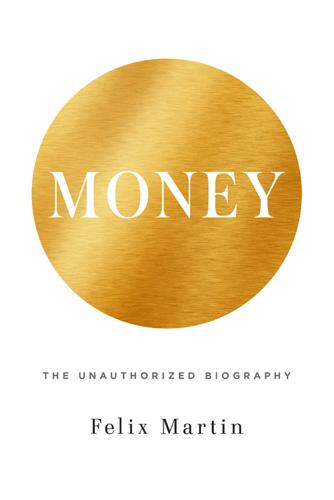
Money: The Unauthorized Biography
by
Felix Martin
Published 5 Jun 2013
A version of it can be found in Aristotle’s Politics, the earliest treatment of the subject in the entire Western canon.9 It is the theory developed by John Locke, the father of classical political Liberalism, in his Second Treatise of Government.10 To cap it all, it is the very theory—almost to the letter—advocated by none other than Adam Smith in his chapter “Of the Origin and Use of Money” in the foundation text of modern economics, An Inquiry into the Nature and Causes of the Wealth of Nations: But when the division of labour first began to take place, this power of exchanging must frequently have been very much clogged and embarrassed in its operations … The butcher has more meat in his shop than he himself can consume, and the brewer and the baker would each of them be willing to purchase a part of it.
…
Plutarch, Pericles, 12; quoted in Trevett, J., “Coinage and Democracy at Athens,” in Meadows and Shipton, 2001, p. 24. 17. Trevett, J., “Coinage and Democracy at Athens,” in Meadows and Shipton, 2001, p. 24. 18. International Monetary Fund, 2012, Statistical Table 5, p. 65. 19. This is the essence of the chartalist theory of money, the foundation text of which is Knapp, 1924. 20. This is an extreme simplification of the view put forward by the great German philosopher Georg Simmel in his 1907 book, The Philosophy of Money, see Simmel, 1978. 21. Plato, Laws 5.741e–742b. 22. This estimate of the number of Athenian citizens in the second half of the fourth century BC is from Hansen, 1985, pp. 67–78. 23.
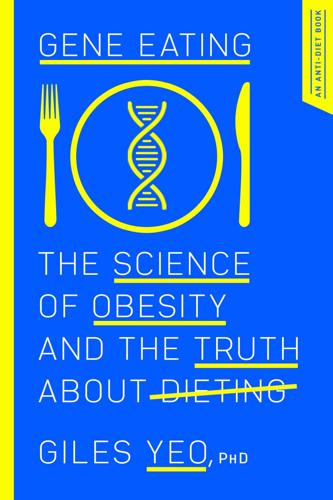
Gene Eating: The Science of Obesity and the Truth About Dieting
by
Giles Yeo
Published 3 Jun 2019
However, in 2011, a cardiologist from Milwaukee, Wisconsin, William (Bill) Davis, who clearly had taken at least some inspiration from Fasano, published a book entitled Wheat Belly. It became a runaway bestseller, with more than 2 million copies sold worldwide. In fact, Wheat Belly turned out to be one of the foundational texts that has fuelled (and continues to fan the flames of) the ‘gluten-free’ movement, elevating it from a niche diet for coeliacs to a cause célèbre embraced by the Hollywood glitterati, Instagram gurus and elite athletes alike. A HAMBURGER WITH NO BUN Late in 2016, I took a week-long trip to the United States with the BBC Horizon documentary team, to film a series of interviews for our investigative piece into ‘clean-eating’.
…
One such person was Bill Clinton, who in an effort to combat his heart disease, changed his diet after reading The China Study, as well as Prevent and Reverse Heart Disease by Caldwell Esselstyn. Caldwell Esselstyn and Colin Campbell became close friends, brought together by a common philosophy, and both of their books have become the foundational texts for the plant-based movement. WHY PLANT-BASED AND NOT VEGAN? I must admit that before I started researching for the documentary and for this book, I had not realised that there was a difference between being plant-based and vegan. When I made the mistake of using the term vegan while speaking to a group of people living a plant-based lifestyle, I got responses ranging from mild annoyance to outright aggression.
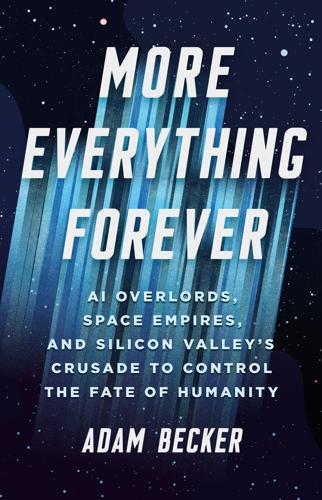
More Everything Forever: AI Overlords, Space Empires, and Silicon Valley's Crusade to Control the Fate of Humanity
by
Adam Becker
Published 14 Jun 2025
On a list of “~cute boy things~” she included “controlling most major world governments” and “being responsible for many important inventions and scientific discoveries,” following that list with a set of affirmations: if you are a boy who is driven to succeed at ambitious goals you are valid if you are a boy who arrives at opinions through logical reasoning you are valid if you are a boy with the confidence to advocate for unconventional ideas and take actions based on them you are valid70 Those quotes from Ellison’s alleged Tumblr appear to be indirect references to a foundational text in the rationalist community, and the name of the Tumblr itself, “worldoptimization,” is a direct reference to it.71 While effective altruism is theoretically independent of rationalism, the two groups have so much overlap in people—so many effective altruists are rationalists and vice versa—that in practice, it’s not possible to fully parse the behaviors and motivations of the two groups independently of each other.
…
In 2006, Hanson started a group blog called Overcoming Bias about “how to move our beliefs closer to reality, in the face of our natural biases,” and invited Yudkowsky to contribute.44 Yudkowsky started writing daily blog posts on subjects like confirmation bias, evolutionary psychology, and the overwhelming importance of Bayes’ theorem (a fundamental law of probabilistic inference) in his worldview.45 He also posted threads on subjects well outside the stated remit of the blog, from quantum mechanics to the Singularity to his own “Fun Theory” about how to best enjoy life. These posts—which collectively ran to about half a million words, slightly longer than The Lord of the Rings—were dubbed “the Sequences.”46 They formed a set of foundational texts for the community that was coalescing around Yudkowsky and SIAI, which came to be known as the rationalists. Rationalist meetups started in the San Francisco Bay Area in 2008 and spread to several other cities not long after.47 In 2009, the rationalists got their own dedicated home online when Yudkowsky moved most of his old posts from Overcoming Bias to a new community website called LessWrong.48 Several frequent posters on LessWrong started their own rationalist blogs over the next few years.
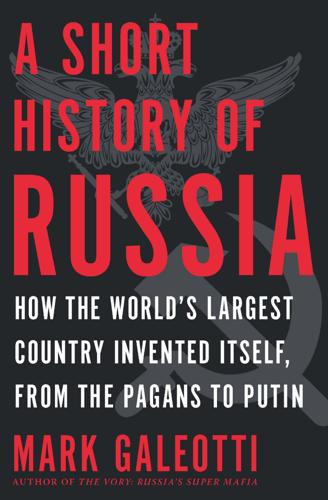
A Short History of Russia
by
Mark Galeotti
Published 1 May 2020
Ancient history, national myths and modern wars can be closer than we might like to believe, and nowhere more so than in the lands of the Rus’. * * * Further reading: There is, sadly, something of a dearth of readable studies of this fascinating time. Simon Franklin and Jonathan Shepard’s The Emergence of Rus 750–1200 (Longman, 1996) remains one of the foundational texts, although it is not the lightest of reads. That is doubly true of Pavel Dolukhanov’s scholarly The Early Slavs: Eastern Europe from the Initial Settlement to the Kievan Rus (Routledge, 1996). The first half of Janet Martin’s magisterial Medieval Russia, 980–1584 (Cambridge, 2007) is a more accessible overview.
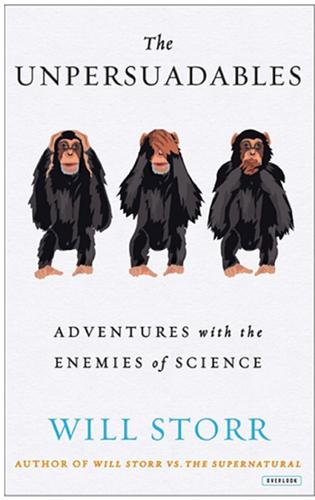
The Unpersuadables: Adventures With the Enemies of Science
by
Will Storr
Published 1 Jan 2013
The fallibility of human belief is the base upon which the Skeptics build their activism. As bracingly incredible as it was to me, it is highly likely that the ordinary Skeptic would have discovered nothing new in the chapter that precedes this one. Confirmation bias, cognitive dissonance, unconscious ego-bolstering and the many illusions of vision are their foundational texts, their Matthew, Mark, Luke and John. Skeptics rely on the findings of science, rather than the dubious anecdotes of individuals, to inform them about the world. They are knights of hard intellect whose ultimate goal is a world free of superstitious thinking. Do not make the mistake of doubting how seriously some take this task.
…
The history of this corrosive alliance between the left and atheist scientists had begun eleven years before Lord Monckton’s union campaign, when an American academic named Rachel Carson published her book Silent Spring, which warned of the potential dangers of the pesticide DDT. It was to became totemic, a foundational text for the modern environmental movement that ultimately influenced policymakers who banned the use of the chemical around the world, even where it was being used to kill malarial mosquitoes. ‘It was a stupid book,’ says Lord Monckton. ‘Carson was well intentioned, bless her little cotton socks, but stupid scientifically.
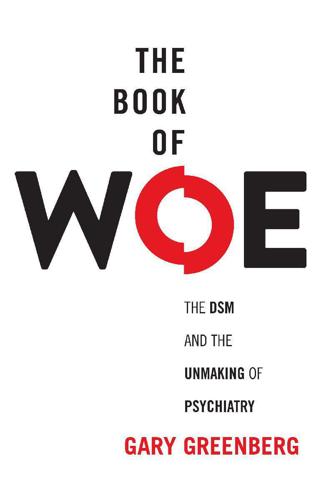
The Book of Woe: The DSM and the Unmaking of Psychiatry
by
Gary Greenberg
Published 1 May 2013
The APA hadn’t quite figured out the details, whether, say, it would grant purchasers of the new book a license to download updates as new research developed or just turn the whole business over to Amazon, but one thing was certain: after DSM-5 came “DSM-5.1, DSM 5.2, etc., until a new edition is required.” DSM-5, evidently, was going to be beta-tested. David Kupfer seemed to anticipate the problem hidden in the new convention—that it more or less announced that the foundational text of his profession, the one that provided certainty about matters of vital importance to insurers and regulators and drug companies and patients, was provisional—when he reassured the public that “our primary commitment will continue to be to create a manual that is based on science and is useful in diagnosing and treating patients.”
…
“Any new boycott must unify the diverse opposition9,” he wrote, “not further fragment what is already a very fragmented field.” But the groups did not coalesce into a single movement, nor did the antipsychiatrists among the dissidents heed his call to stop using his name (“without permission,” he pointed out) to support their cause. Frances was left to explain once again that his attack on his profession’s foundational text was not an attack on the profession itself. For his part, Michael First was back on the inside. In late November, I asked him about a rumor I’d been hearing all fall: that the APA had called him to duty to help finalize the manual. “I can confirm10 it’s true,” he e-mailed, “but I really cannot say anything else.
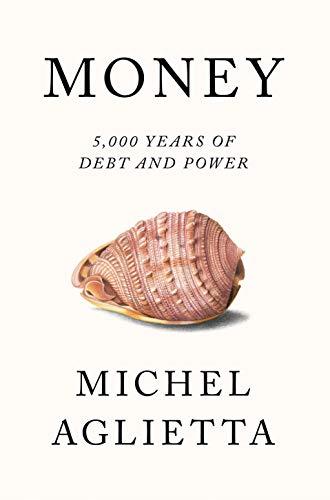
Money: 5,000 Years of Debt and Power
by
Michel Aglietta
Published 23 Oct 2018
What relation is there between strong efficiency in Fama’s sense and the ‘True Economic Model’ that determines the fundamental values of future goods and services? It was up to the rational expectations revolution to accomplish the theory of pure economics that would establish this link. The foundational text in this respect was John Muth’s 1961 work.9 Muth wholly embraced the position of the prophet. The theorist of pure economics speaks the ‘Truth’. He speaks the Word of the Equilibrium which is the God of the economy. The self-organisation of the financial market transmits the Word to the actors, whose anticipations realise themselves within it.
…
This external position must remain credible, but it must not prevent the bank from playing its proper political role in regulating money. It must not, therefore, prevent it from taking the necessary discretionary actions. Hence, independence is a monetary principle integral to sovereignty, and not an operational rule transforming the central bank into some kind of automaton. The foundational texts should invest the central banks with the mission of maintaining price stability. But in all their great wisdom, these texts should hold back from specifying what price stability is. For this would deny the central bank its own capacity for judgement in the face of unforeseeable contexts. Independence is a symbol that works if the central bank can adopt flexible policies to respond equitably to a variety of imbalances, without being suspected of threatening price stability.
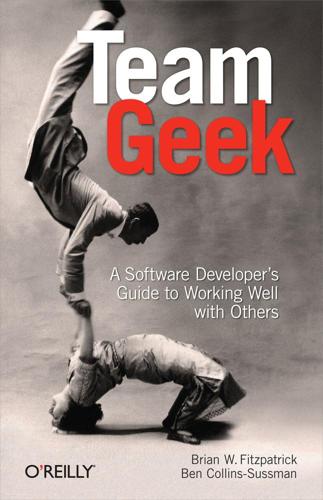
Team Geek
by
Brian W. Fitzpatrick
and
Ben Collins-Sussman
Published 6 Jul 2012
” — Clay Johnson “Team Geek is an insightful exploration of building successful teams and products, taken from years of tackling difficult developer pains and issues that we all experience in our careers. The jovial approach to overcoming both engineering and human issues on a technical team delivers an engaging foundation text that should be a staple of every engineer’s library.” — Jonathan Leblanc “Programming is no longer about code and machines, if it ever was. Increasingly, it’s about fitting together existing pieces in new ways—and each piece comes with people attached. The authors have understood this for years, and their message is as simple as their advice is varied: focus on the people as much as you focus on the code, and you will not only be a happier programmer, you will be the cause of happier programmers.
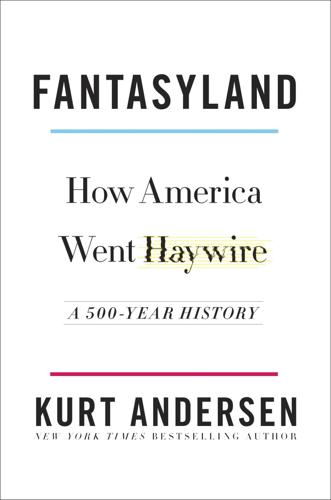
Fantasyland: How America Went Haywire: A 500-Year History
by
Kurt Andersen
Published 4 Sep 2017
“I am writing a novel about the career of an architect,” Rand told Wright in a 1937 letter, megalomaniac to megalomaniac, which will be the “story of human integrity….That is what you have lived…the only one among the men of this century who has lived it.” That turned into The Fountainhead, her first bestselling fantasy of a glorious superindividualist, which became a foundational text for American libertarians (see Chapter 40). *3 One such Mediterranean fantasia was Mar-a-Lago—built at the height of the first Florida real estate bubble in the 1920s by the daughter of the founder of Post cereals (see Chapter 11), now owned by a high lord of Fantasyland and president of the United States (see Chapter 46). 21 The 1950s Seemed So Normal I WAS BORN IN THE middle of the century in the middle of the country to middle-class parents.
…
“If we were going to be meticulous,” Peter Berger and Thomas Luckman wrote, “we would put quotation marks around the two aforementioned terms every time we used them.” “What is ‘real’ to a Tibetan monk may not be ‘real’ to an American businessman.” When I first read that at eighteen, I loved the scare quotes. It was the early 1970s, so this new paradigm made scales fall from eyes, and not just adolescents’. The book was timed perfectly to become a foundational text in academia and beyond. It just seemed so profoundly true that nothing was absolutely, immutably true. And if reality is simply the result of rules written by powers-that-be, then isn’t everyone able—no, isn’t everyone obliged—to construct their own realities? A more extreme academic evangelist for all truths being equal, and a more ultra-1960s character, was a UC Berkeley philosophy professor named Paul Feyerabend.
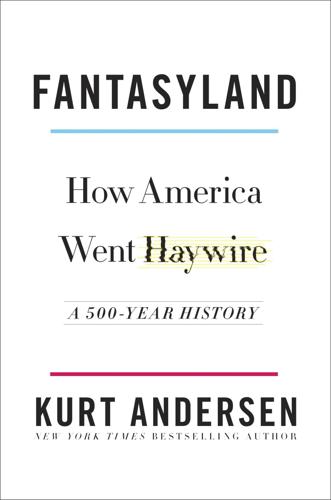
Fantasyland
by
Kurt Andersen
Published 5 Sep 2017
“I am writing a novel about the career of an architect,” Rand told Wright in a 1937 letter, megalomaniac to megalomaniac, which will be the “story of human integrity….That is what you have lived…the only one among the men of this century who has lived it.” That turned into The Fountainhead, her first bestselling fantasy of a glorious superindividualist, which became a foundational text for American libertarians (see Chapter 40). *3 One such Mediterranean fantasia was Mar-a-Lago—built at the height of the first Florida real estate bubble in the 1920s by the daughter of the founder of Post cereals (see Chapter 11), now owned by a high lord of Fantasyland and president of the United States (see Chapter 46). 21 The 1950s Seemed So Normal I WAS BORN IN THE middle of the century in the middle of the country to middle-class parents.
…
“If we were going to be meticulous,” Peter Berger and Thomas Luckman wrote, “we would put quotation marks around the two aforementioned terms every time we used them.” “What is ‘real’ to a Tibetan monk may not be ‘real’ to an American businessman.” When I first read that at eighteen, I loved the scare quotes. It was the early 1970s, so this new paradigm made scales fall from eyes, and not just adolescents’. The book was timed perfectly to become a foundational text in academia and beyond. It just seemed so profoundly true that nothing was absolutely, immutably true. And if reality is simply the result of rules written by powers-that-be, then isn’t everyone able—no, isn’t everyone obliged—to construct their own realities? A more extreme academic evangelist for all truths being equal, and a more ultra-1960s character, was a UC Berkeley philosophy professor named Paul Feyerabend.
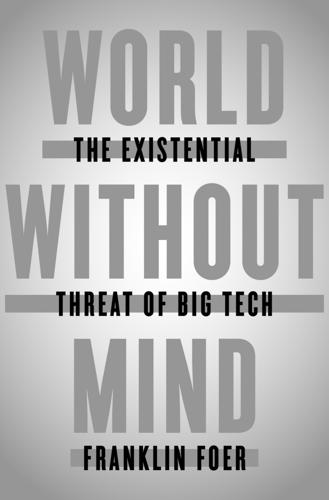
World Without Mind: The Existential Threat of Big Tech
by
Franklin Foer
Published 31 Aug 2017
This was where the notion of the Whole Earth came in. Brand wanted his readers to think ecologically, to see how everything relates to everything else, to understand their place in the web of life. As the back cover of the catalog phrased it, “We can’t put it together. It is together.” The Whole Earth Catalog is a foundational text of Silicon Valley—which helps account for the culture of the place. Despite the venture capitalists and the Teslas, Silicon Valley remains infused with the trace residue of the commune. It’s the reason that CEOs sit in the middle of open offices that ostensibly eschew organizational hierarchy, wearing the same T-shirt as the lumpen-programmer across the room.
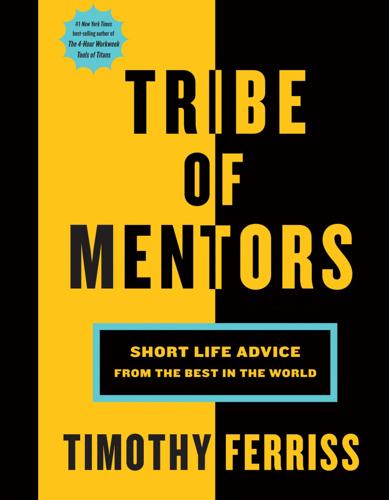
Tribe of Mentors: Short Life Advice From the Best in the World
by
Timothy Ferriss
Published 14 Jun 2017
The Story of My Experiments with Truth by Mahatma Gandhi: This autobiography of Gandhi curiously led me to Jesus. Gandhi’s stance of radical honesty prompted me to attempt the same. It started my spiritual awakening. The Bible: Reading this all the way through, beginning to end, shattered all expectations I had of such a foundational text. It was weirder, stranger, more disturbing, and more powerful than I was led to believe. I’ve read it through several times more and it never fails to disturb me, in good ways and bad. Gödel, Escher, Bach by Douglas R. Hofstadter: I was amazed and impressed by the brilliance of GEB when I first read it, but it didn’t alter my life at first.
…
–Sun Tzu Chinese military strategist and author of The Art of War “Let the first impulse pass. Wait for the second.” –Baltasar Gracián Spanish Jesuit and baroque prose writer lauded by Schopenhauer and Nietzsche “Emptiness is the fasting of the mind.” –Zhuang Zhou 4th century B.C. Chinese philosopher and author of Zhuangzi, a foundational text of Taoism “Don’t spend time chasing a right answer or a right path, but instead spend time defining how you are going to approach whatever path you choose.” Laura R. Walker TW: @lwalker wnyc.org LAURA R. WALKER is president and CEO of New York Public Radio, the largest public radio station group in the nation.
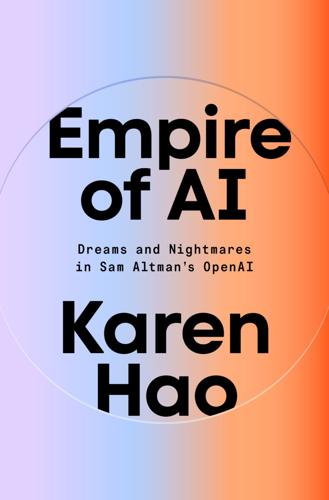
Empire of AI: Dreams and Nightmares in Sam Altman's OpenAI
by
Karen Hao
Published 19 May 2025
But the story left me with an uneasy feeling that the successful backlash was an anomaly, and the company’s original approach—to go to countries eager to embrace the promise of technology for finding data donors and product testers—was in fact a trend. As I recounted this worry to a colleague, she introduced me to a phrase that had already been coined for the phenomenon: “data colonialism.” I discovered the work of scholars Nick Couldry and Ulises A. Mejias, whose foundational text The Costs of Connection, published just that year, argued that Silicon Valley’s pervasive datafication of everything was leading to a return of disturbing historical patterns of conquest and extractivism.[*] The following year, a paper called “Decolonial AI” from Shakir Mohamed and William Isaac at DeepMind and Marie-Therese Png at the University of Oxford reinforced a suspicion I had begun to develop: The AI industry, in equal parts fueled by and fueling this datafication, was in turn accelerating that new colonialism further.
…
For more reading on the concept of extractivism, refer to Rosemary Collard and Jessica Dempsey, “ ‘Extractivism’ Is Destroying Nature: To Tackle It Cop15 Must Go Beyond Simple Targets,” The Guardian, December 8, 2022, theguardian.com/environment/2022/dec/08/extractivism-is-destroying-nature-to-tackle-it-cop15-must-go-beyond-simple-targets; and one of the foundational texts that defined the concept: Eduardo Gudynas, “Diez tesis urgentes sobre el nuevo extractivismo: Contextos y demandas bajo el progresismo sudamericano actual,” in Extractivismo, Política y Sociedad, eds. CAAP and CLAES (2009), 187, rosalux.org.ec/pdfs/extractivismo.pdf. GO TO NOTE REFERENCE IN TEXT The following year, a paper: Shakir Mohamed, Marie-Therese Png, and William Isaac, “Decolonial AI: Decolonial Theory as Sociotechnical Foresight in Artificial Intelligence,” Philosophy and Technology 33 (July 12, 2020): 659–84, doi.org/10.1007/s13347-020-00405-8.
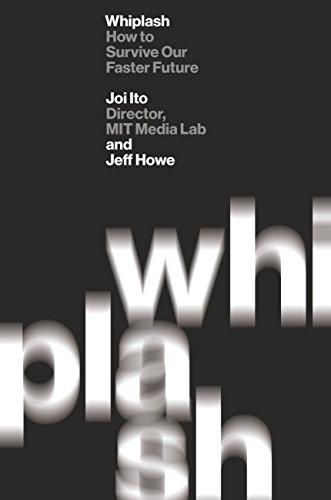
Whiplash: How to Survive Our Faster Future
by
Joi Ito
and
Jeff Howe
Published 6 Dec 2016
The most obvious example of an emergent system created by humans is the economy, which clearly exhibits attributes that no individual could control. We tend to think of markets as little more than the site at which buyers meet sellers to conduct their business. But as Austrian economist Friedrich Hayek observed in a 1945 paper regarded as one of the foundational texts of information theory, markets do something far more valuable: They gather and utilize knowledge which is “widely dispersed among individuals,” Hayek writes. “Each member of society can have only a small fraction of the knowledge possessed by all, and… each is therefore ignorant of most of the facts on which the working of society rests.”
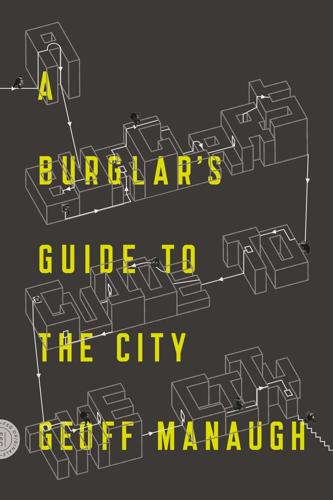
A Burglar's Guide to the City
by
Geoff Manaugh
Published 17 Mar 2015
When I asked what he meant when he said that a more consistent application of the city’s grid would be useful, he told me about the rules of four. The idea of studying the urban and architectural—even numerical—visions of police is by no means new or unique to my own research. Thomas More’s Utopia is a foundational text in the peculiar genre of describing the ideal metropolis; it is equal parts political theory and moral treatise, with a strong undercurrent of speculative design. What is the perfect city? More asks. What would it look like and how would it work? As it happens, one of the book’s earliest passages is a reflection on how to prevent not just crime but specifically theft and robbery in a perfect society.
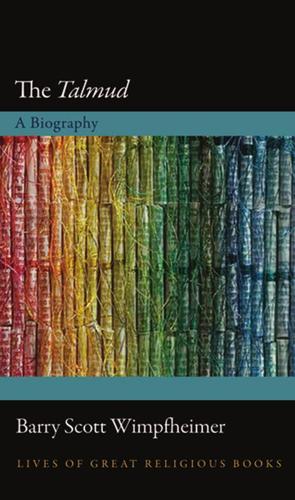
The "Talmud"
by
Wimpfheimer, Barry Scott.
Published 22 Jan 2018
This book will demonstrate that there are three registers of Talmudic meaning. (Chapter 1 contains a fuller description of the Talmud itself.) To understand this notion of multiple registers of meaning, the reader who has not yet encountered the Talmud should consider the biblical Ten Commandments or the United States Constitution as comparable foundational texts. These three texts (the two comparators and the Talmud) were produced in historical time and place. The original meaning of the text is the essential meaning of the text. There are fundamental problems that affect one’s ability to confidently recover the original meaning of a text. And yet we can easily comprehend historical meaning as an ideal to which one might strive.
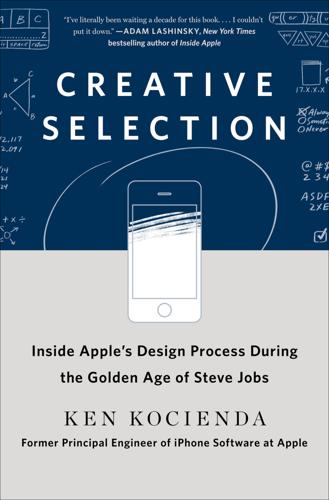
Creative Selection: Inside Apple's Design Process During the Golden Age of Steve Jobs
by
Ken Kocienda
Published 3 Sep 2018
Finding remedies for speed setbacks typically involved the prickly issue of software optimization, and that term warrants some explanation. * * * There aren’t many famous computer scientists, even among programmers, but Donald Knuth is rightly revered. He is the author of The Art of Computer Programming, one of the foundational texts of computer science, a multivolume treatise that he’s been writing, with something approximating monklike asceticism and devotion, since 1962.1 Knuth undertakes meticulous research, writes with extreme care, and issues publications with titles like Introduction to Combinatorial Algorithms and Boolean Functions, Bitwise Tricks & Techniques; Binary Decision Diagrams, and Generating All Trees—History of Combinatorial Generation.
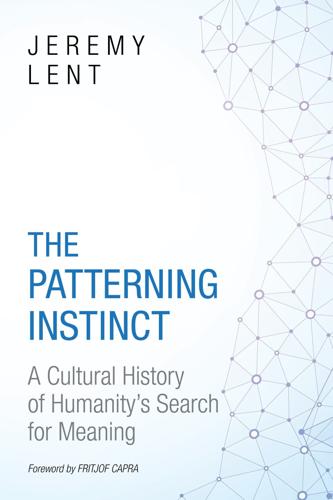
The Patterning Instinct: A Cultural History of Humanity's Search for Meaning
by
Jeremy Lent
Published 22 May 2017
The word tao literally means “way” or “path,” and the idea of the Tao (pronounced “dao” and often spelled like that) is as central to Chinese thought as qi or yin and yang.24 The Taoist school of thought in ancient China was dedicated to understanding this pathway and learning how to live one's life according to it. The Tao Te Ching, second only to the Bible as the most translated book in history, was its foundational text. Legend has it that it was written by Lao-Tzu (whose name literally means “old master”), but it more likely represents the collective wisdom of an ancient tradition dating back into the mists of time, finally captured in written form during the third century BCE.25 In approaching the Tao Te Ching, it's helpful to look more closely at its title.
…
In their attempts to promote Confucianism and refute Buddhism and Taoism, they ended up creating a triumphant synthesis of all three traditions, weaving crucial elements of each into a philosophical fabric that was far more comprehensive than any alone could have been.12 Searching for the Principles of Reality The Neo-Confucians needed to propose an alternative understanding of reality to refute the Buddhist notion of emptiness. Where could they begin? The man regarded as the father of Neo-Confucianism, Zhou Dun-yi, searched the foundational texts of Chinese thought for a hint of what the ancients viewed as some kind of ultimate ground of reality. He scoured the Tao Te Ching, the most important text of the Taoists, along with the I Ching, which was equally valued by Confucians. In the Tao Te Ching, he found a passage stating that, by pursuing the Tao without deviation, “one again returns to the unlimited.”
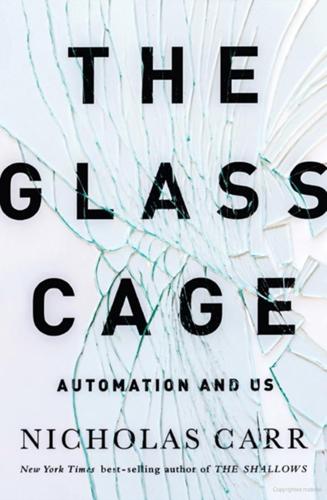
The Glass Cage: Automation and Us
by
Nicholas Carr
Published 28 Sep 2014
Thanks to the ingenuity of our inventors and entrepreneurs, hardly a decade has passed without the arrival of new, more elaborate, and more capable machinery. Yet our ambivalence toward these fabulous creations, creations of our own hands and minds, has remained a constant. It’s almost as if in looking at a machine we see, if only dimly, something about ourselves that we don’t quite trust. In his 1776 masterwork The Wealth of Nations, the foundational text of free enterprise, Adam Smith praised the great variety of “very pretty machines” that manufacturers were installing to “facilitate and abridge labour.” By enabling “one man to do the work of many,” he predicted, mechanization would provide a great boost to industrial productivity.7 Factory owners would earn more profits, which they would then invest in expanding their operations—building more plants, buying more machines, hiring more employees.
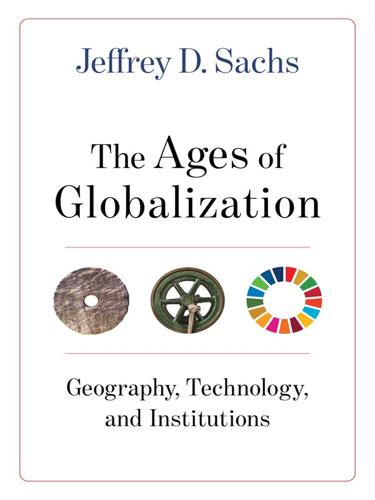
The Ages of Globalization
by
Jeffrey D. Sachs
Published 2 Jun 2020
Scripts were similarly being adopted in Persia for the Old Persian language and in northern India for Classical Sanskrit sometime around 500 BCE or later, with ongoing debates about the precise timing. In China, the characters of Classical Chinese were similarly being developed, and Confucian thought was written down in Classical Chinese in the period after 500 BCE. The new scripts, in short, became the means for writing down and transmitting the foundational texts and philosophies of Western, Persian, Indian, and Chinese civilizations. Thalassocracy and Tellurocracy As the pace of economic and intellectual development hastened in the eastern Mediterranean and western Asia around 1000 BCE, two kinds of civilizations developed side by side. The first consisted of city-states with economies based on sea-based trading networks, of which the most remarkable were the Phoenicians and the ancient Greeks; the second were the city-states based on agriculture and mining that eventually became the land-based empires of the Classical Age.
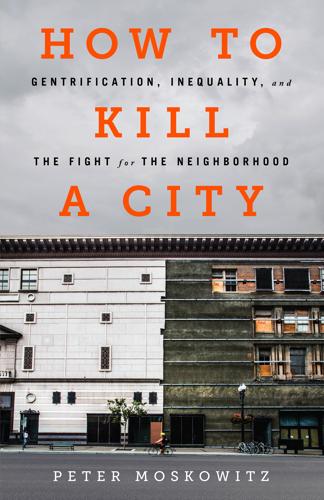
How to Kill a City: The Real Story of Gentrification
by
Peter Moskowitz
Published 7 Mar 2017
Gentrification is easy. So with little money in municipal coffers and little hope for a better future, it seems that politicians and planners (and in the case of Detroit, the corporations and nonprofits that have replaced them) have managed to turn a blind eye to the warnings of the profession’s foundational texts. Cities have pursued whole-hog Richard Florida’s strategies for wooing millennials without considering the serious limitations of those strategies and the profound effects they may have on everyone else. They ignore that Richard Florida has admitted that the creative class is not a silver bullet, and they forget that Jane Jacobs, the other most famous urbanist in America, talked not only about what makes city blocks cute and community-oriented but also about all the ways in which governments encourage the destruction of places for the middle class.
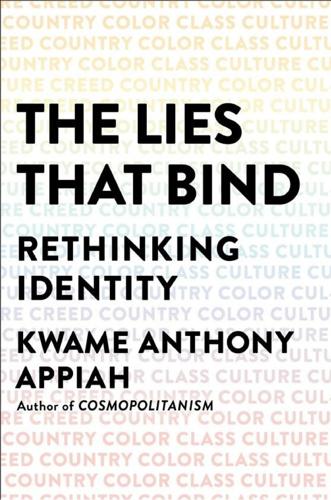
The Lies That Bind: Rethinking Identity
by
Kwame Anthony Appiah
Published 27 Aug 2018
Yet, as we’ve seen, the same ahistoricism is shared by critics of fundamentalism who equate a religious identity with some fixed set of beliefs or some reading of its scripture. They succumb to what might be called the source-code fallacy: the idea that the true nature of a religion lies with its deepest, most foundational texts, abstracted away from the real-world range of its actual adherents; that access to these codes can reveal that religion’s essence. All of us are conscious today of interpretations of Islam that are wielded in support of violence against Muslims and non-Muslims, that incite terror and murder and destruction.
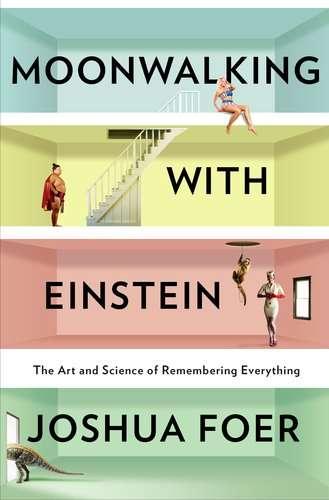
Moonwalking With Einstein
by
Joshua Foer
Published 3 Mar 2011
What’s more, memory training was considered a form of character building, a way of developing the cardinal virtue of prudence and, by extension, ethics. Only through memorizing, the thinking went, could ideas truly be incorporated into one’s psyche and their values absorbed. The techniques existed not just to memorize useless information like decks of playing cards, but also to etch into the brain foundational texts and ideas. But then, in the fifteenth century, Gutenberg came along and turned books into mass-produced commodities, and eventually it was no longer all that important to remember what the printed page could remember for you. Memory techniques that had once been a staple of classical and medieval culture got wrapped up with the occult and esoteric Hermetic traditions of the Renaissance, and by the nineteenth century they had been relegated to carnival sideshows and tacky self-help books—only to be resurrected in the last decades of the twentieth century for this bizarre and singular competition.
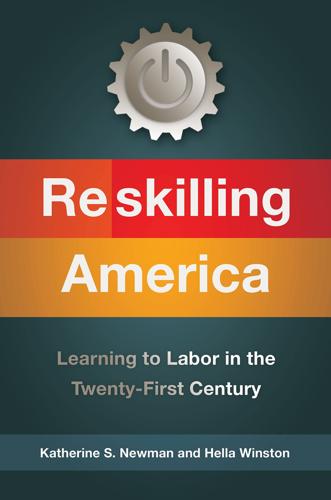
Reskilling America: Learning to Labor in the Twenty-First Century
by
Katherine S. Newman
and
Hella Winston
Published 18 Apr 2016
England has very nearly exited the heavy manufacturing that once employed millions of working-class youths. The Thatcher government forced the unions back on their heels as waves of strikes in the mines and the auto factories tried to block the evaporation of jobs and the export of industry. Willis’s book, a foundational text in the “Birmingham School” of cultural sociology, very nearly describes a world gone by. The same transition gripped the factory towns of the Midwest and northeastern United States. From the border cities of the northern tier of New York (Syracuse, Rochester), to the industrial strongholds of Trenton, Newark, and Baltimore, not to mention the auto behemoths of Detroit and the steel towns of Gary, Indiana, the same relentless destruction of American industry gathered force in the ’70s and ’80s.
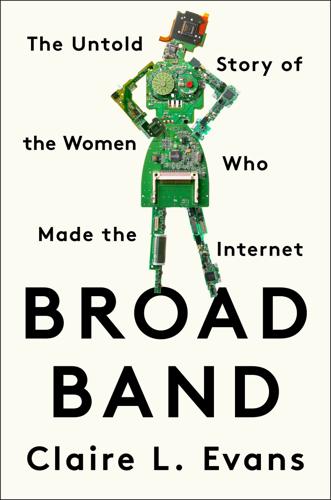
Broad Band: The Untold Story of the Women Who Made the Internet
by
Claire L. Evans
Published 6 Mar 2018
Productivity in computer science labs ceased every time Adventure made landfall on a terminal. An Adventure devotee at Stanford, Don Woods, modified the code further by adding fantasy elements—an underground volcano, a battery-dispensing machine—to Crowther’s austere descriptions. Adventure’s journey into the earth is now considered a foundational text of computer culture. Hundreds of players took their chances on it, then thousands, each scribbling their own hand-drawn maps of the subterranean world Will described. It must have been strange for Pat. By the time she encountered Adventure firsthand, at a Cave Research Foundation meeting in Boston sometime in 1976 or 1977, she was Patricia Wilcox, having married the leader of the 1972 expedition.
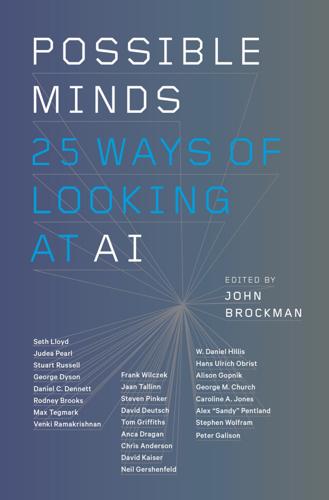
Possible Minds: Twenty-Five Ways of Looking at AI
by
John Brockman
Published 19 Feb 2019
With the advent of the digital era beginning in the early 1970s, people stopped talking about Wiener, but today, his Cybernetic Idea has been so widely adopted that it’s internalized to the point where it no longer needs a name. It’s everywhere, it’s in the air, and it’s a fitting place to begin. NEW TECHNOLOGIES = NEW PERCEPTIONS Before AI, there was cybernetics—the idea of automatic, self-regulating control, laid out in Norbert Wiener’s foundational text of 1948. I can date my own serious exposure to it to 1966, when the composer John Cage invited me and four or five other young arts people to join him for a series of dinners—an ongoing seminar about media, communications, art, music, and philosophy that focused on Cage’s interest in the ideas of Wiener, Claude Shannon, and Marshall McLuhan, all of whom had currency in the New York art circles in which I was then moving.
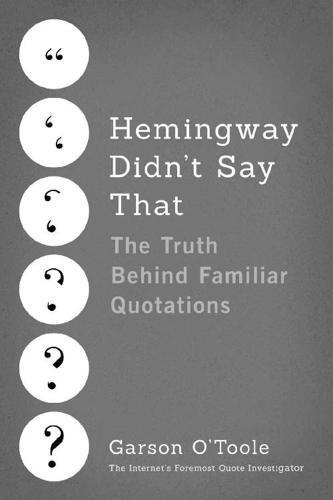
Hemingway Didn't Say That: The Truth Behind Familiar Quotations
by
Garson O'Toole
Published 1 Apr 2017
In the second commandment, the word “kind” is sometimes used instead of “good.” The first phrase begins: “If you are kind” or “If you do good.” The final phrase begins “Be kind anyway” or “Do good anyway.” Occasionally, entire statements have been deleted. But Keith’s “Paradoxical Commandments” function as the foundational text, and other sets have been directly or indirectly derived from them. In December 1972 the commandments, in slightly modified form, were given a new attribution in a syndicated newspaper article. The following excerpt shows the introduction and the first commandment:4 Dempsey Byrd has put together ten rules which you can make your own to your eternal profit.
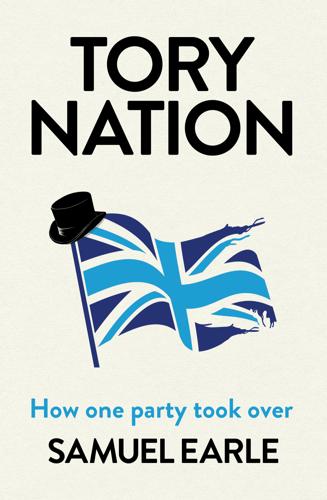
Tory Nation: The Dark Legacy of the World's Most Successful Political Party
by
Samuel Earle
Published 3 May 2023
(Nor does the widely recognised anti-Semitism in Edmund Burke’s Reflections on the Revolution in France – which, in the words of one scholar, ‘deemed the Jews’ financial dealings and their presence in Britain as a threat to Britain’s national solidarity’23 – taint contemporary Conservatives who claim it as their foundational text.) In Corbyn’s case, however, his foreword became a national scandal; The Times story drew follow-up reports in all the major newspapers along with the BBC, and led to a strongly worded statement from the Board of Deputies of British Jews expressing ‘grave concerns’. Such inconsistencies were standard fare.
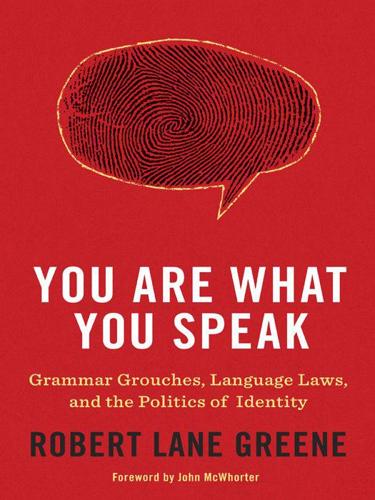
You Are What You Speak: Grammar Grouches, Language Laws, and the Politics of Identity
by
Robert Lane Greene
Published 8 Mar 2011
Jones’s discovery and the quotation above are as well known to linguists as Thomas Jefferson’s opening of the Declaration of Independence is known to American schoolchildren. The discovery of Indo-European led to an explosion of interest in languages and their histories. The first modern scientific linguists began to investigate just how the modern languages had emerged. If Jones’s speech formed a foundational text for linguistics, one of its first early lawgivers was Jacob Grimm—perhaps the James Madison of the discipline. In his work, he began to develop one of the tools of modern language science: the laws of language change. Grimm proved that languages don’t change randomly due to speakers’ laziness; they change systematically.
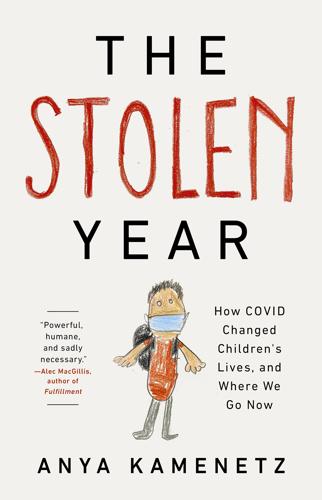
The Stolen Year
by
Anya Kamenetz
Published 23 Aug 2022
.… On the other hand it does also feel like parenting. It’s confusing.” PUNISHING POOR FAMILIES AND CHILD WELFARE ABOLITION In June 2021, the legal scholar Dorothy Roberts gave a remote keynote address at a symposium at Columbia University. Her 1999 book Shattered Bonds: The Color of Child Welfare is considered the foundation text for the movement now called child welfare abolition. “If you came with no preconceptions about the purpose of the child welfare system,” she said in her speech, “you would have to conclude that it’s an institution designed to monitor, regulate, and punish poor Black families.” Roberts noted that since the book’s publication she’d been involved in many years of failed reform efforts.

The Sirens' Call: How Attention Became the World's Most Endangered Resource
by
Chris Hayes
Published 28 Jan 2025
The two are inseparable because information consumes attention. The more information there is, the more competition there is for attention, which is by definition scarce. The more demand there is for a scarce resource, the more valuable it is. Simon is often credited with coining the phrase “attention economy,” and his paper is cited as the foundational text in its study. But Simon’s preoccupation was quite a bit different than our current concerns with how various market forces—large corporations, platforms, and tech companies—attempt to capture our attention. Simon’s short, elegant paper makes a far deeper point, one that explains why the information age is and has always been the attention age.
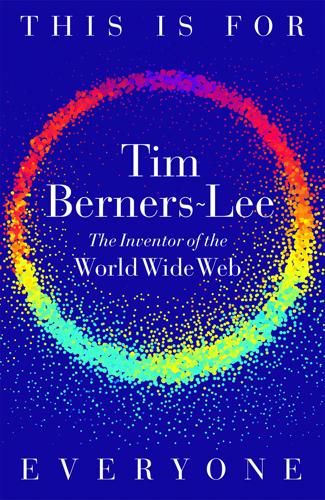
This Is for Everyone: The Captivating Memoir From the Inventor of the World Wide Web
by
Tim Berners-Lee
Published 8 Sep 2025
‘While the web has created opportunity, given marginalized groups a voice, and made our daily lives easier, it has also created opportunity for scammers, given a voice to those who spread hatred, and made all kinds of crime easier to commit.’ With the web turning thirty (and me turning sixty-five) I wanted to recapture some of the initial optimism the technology had generated back in the 1990s. In this spirit, the Web Foundation team produced a new foundational text we called the Contract for the Web. Our inspiration was the Universal Declaration of Human Rights, which the United Nations (UN) adopted in 1948. Over time, several other declarations of this type had been adopted. For example, the UN Convention of the Law of the Sea, first adopted in 1958, attempted to collectively manage the world’s oceans, while the Outer Space Treaty, passed in 1967, prohibited nuclear weapons in space and limited the use of the moon to peaceful purposes.
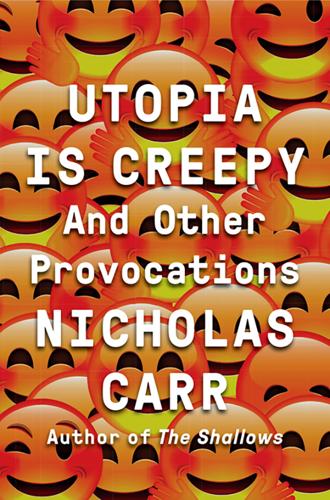
Utopia Is Creepy: And Other Provocations
by
Nicholas Carr
Published 5 Sep 2016
If scientists had done the same sort of studies on pinball players fifty years ago, they would have probably seen similar results. But these studies have also come to be interpreted in broader terms. Some popular-science writers draw on them as evidence that the heavy use of digital media—not just video games, but browsing, texting, online multitasking, and so forth—actually makes us “smarter.” The foundational text here is Steven Johnson’s Everything Bad Is Good for You. Johnson draws on an important 2003 study, published in Nature, by University of Rochester researchers Shawn Green and Daphne Bavelier, which demonstrated that “10 days of training on an action game is sufficient to increase the capacity of visual attention, its spatial distribution and its temporal resolution.”
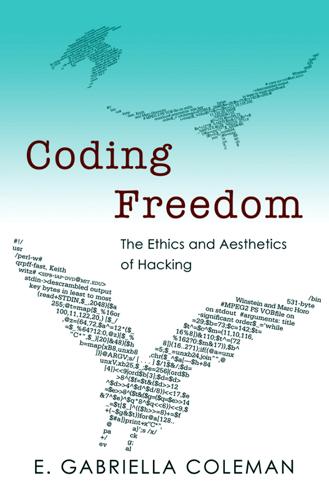
Coding Freedom: The Ethics and Aesthetics of Hacking
by
E. Gabriella Coleman
Published 25 Nov 2012
On the social side, Debian holds the distinction of having more individual members than any F/OSS project. It is also known for its strong commitment to the ethical principles of free software, as elaborated in two key documents—the Social Contract and DFSG. These documents figure prominently in the NMP I discuss below. They are also the foundational texts that orient the project’s sense of identity. Now let’s take a closer look at the Debian charters and governing structures that have emerged in the last decade. Social Charters and Governance Dissatisfied with the then-existing distribution and inspired by the Linux kernel project, Murdock founded the Debian project in August 1993.
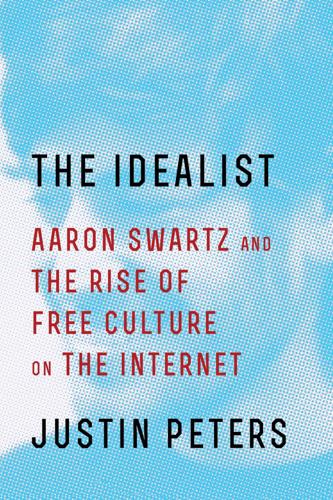
The Idealist: Aaron Swartz and the Rise of Free Culture on the Internet
by
Justin Peters
Published 11 Feb 2013
On July 4, 1971, rather than brave the summer heat for a long walk home, Hart decided to spend the night in the mainframe room, so he ran out for groceries and settled in for history’s nerdiest slumber party.23 The system programmer on duty was a friend of Hart’s brother, and, for some reason, he decided that night to give Hart his very own account on the Xerox Sigma V—which, Hart later claimed, may have made him the first private citizen on the Internet.24 Hart realized that he had been given great power, and this power made him hungry. Reaching into his grocery bag for some food, he noticed that a checkout clerk had included, free of charge, a pamphlet containing reproductions of various patriotic documents.25 The insert began with the Declaration of Independence—America’s foundational text, the document that announced a revolution so significant that the entire world took notice. For a young man keen on kindling an epochal revolution of his own, the symbolism was surely too obvious to miss. In that moment, Michael Hart saw the future. Not two hours after obtaining an account on the Xerox Sigma V, Hart later bragged, he had divined the machine’s core function.
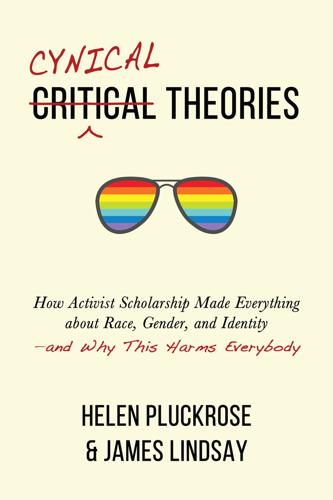
Cynical Theories: How Activist Scholarship Made Everything About Race, Gender, and Identity―and Why This Harms Everybody
by
Helen Pluckrose
and
James A. Lindsay
Published 14 Jul 2020
With its focus on deconstructive techniques and its conception of knowledge as a construct of power, queer Theory is, arguably, the purest form of applied postmodernism. It underlies much trans activism and makes an appearance in multiple forms of Social Justice scholarship. The conceptual framework of intersectionality formed part of the foundational texts of queer Theory, and although the name “intersectionality” is more associated with critical race Theorist Kimberlé Crenshaw, Butler also spoke of “intersections” with other forms of marginalized identity at the same time as Crenshaw and, seemingly, independently. For her, “gender intersects with racial, class, ethnic, sexual, and regional modalities of discursively constituted identities.”44 Thus, Butlerian queer Theory is easily integrated as a key dimension of intersectional thought.
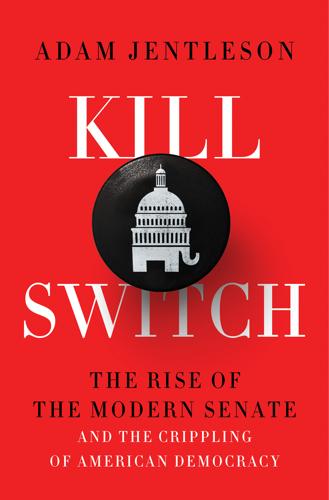
Kill Switch: The Rise of the Modern Senate and the Crippling of American Democracy
by
Adam Jentleson
Published 12 Jan 2021
THE DIVIDE BETWEEN the liberals and the southerners that Johnson had to bridge was only getting wider. In the 1950s, southerners escalated their tactics from blocking civil rights bills to calling for the open defiance of federal laws. In response to the Supreme Court’s Brown v. Board of Education decision in 1954, southern Democrats produced the foundational text of the white backlash movement known as “massive resistance.” With Russell’s guidance, southern senators titled the document the “Declaration of Constitutional Principles,” but it was more commonly referred to as the Southern Manifesto. In anodyne legal language, it urged states to defy the Brown ruling.
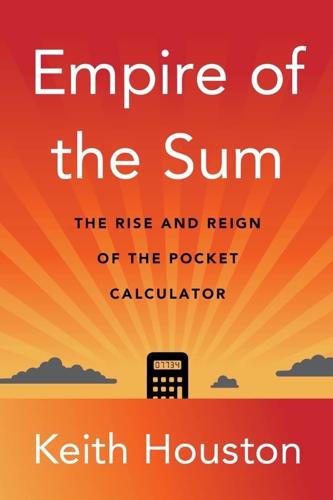
Empire of the Sum: The Rise and Reign of the Pocket Calculator
by
Keith Houston
Published 22 Aug 2023
On receiving the gift of writing from the god Thoth, for example, an ancient Egyptian king named Thamus fretted that his subjects’ memories would atrophy as they came to rely upon the demon papyrus.3 For more recent examples, look no further than the New York Times’s nineteenth-century excoriation of Alexander Graham Bell’s “atrocious” telephone, and the Spectator’s lamentation of the “constant diffusion of statements in snippets [and] the constant excitements of feelings unjustified by fact” perpetrated by the telegraph.4 (Replace “telegraph” with “social media,” and it becomes apparent that the same anxieties exist even today.) Mathematical technologies attracted the same opprobrium. In sixth-century BCE China, Lăozi, author of one of Daoism’s foundational texts, opined that “good mathematicians do not use counting rods.”5 Then came the early modern beef between the abacists with their abacuses and the new-school algorists who used pen and ink to reckon with Hindu-Arabic numerals.6 Even as late as the nineteenth century, Charles Xavier Thomas’s arithmometer could still raise eyebrows at the likes of Spain’s Royal Academy of Sciences, whose members worried that users might lose their facility for paper-and-pen math.7 For calculator manufacturers in the late 1970s, who saw their sales weakening and their profit margins eroding, there was one frontier left to be exploited.
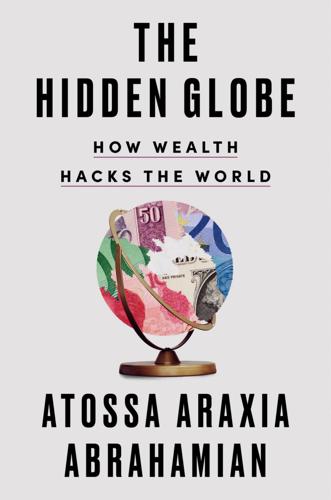
The Hidden Globe: How Wealth Hacks the World
by
Atossa Araxia Abrahamian
Published 7 Oct 2024
Freeports have recently piqued the interest of global historians, and I’m incredibly grateful to the scholars who shared and discussed their work with me: Koen Stapelbroek, Dara Orenstein, Corey Tazzara, and the journal Global Intellectual History, which dedicated a whole issue to the subject. I’ve been obsessed with Singapore since I visited the city-state in 2014. That trip, together with Lee Kuan Yew’s writings and John Curtis Perry’s Singapore, informed my view of the state. Alma Beauvais was the fact-checker on this chapter. Lon Fuller’s Legal Fiction is one of the foundational texts for The Hidden Globe. I return to it often. 4. In the Zones To tell the story of special economic zones in terms that nonexperts can understand, I relied primarily on interviews with a dozen or so people who worked in the business. Among them are Claude de Baissac, Jean-Paul Gauthier, Michael Castle-Miller, Thibault Serlet, Edouard Dommen, Andreas Baumgardner, Chuck Heath, and the World Bank’s Douglas Zeng.
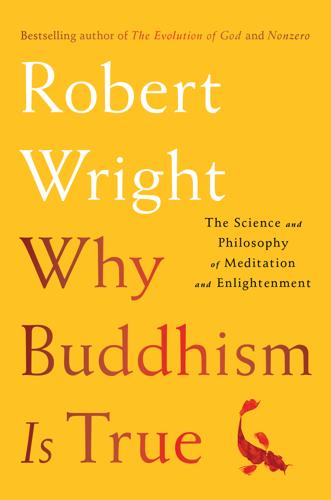
Why Buddhism is True
by
Robert Wright
An understanding of why natural selection engineered various feelings into the human mind (see chapter 3) can help validate the idea that we shouldn’t uncritically accept the guidance of our feelings and can help us choose which feelings to accept guidance from. To exercise this kind of discretion is to follow a strictly pragmatic rendering of Buddhism’s famous “not-self” idea—a rendering that is a plausible interpretation of the foundational text on not-self, the second discourse the Buddha delivered after his enlightenment. (See chapter 5.) 7. The more expansive and more common interpretation of the Buddha’s second discourse—as saying that the “self” simply doesn’t exist—is rendered in various ways in various Buddhist texts. A common rendering—that there is no CEO self, no self that is the “doer of deeds,” the “thinker of thoughts”—is substantially corroborated by modern psychology, which has shown the conscious self to be much less in charge of our behavior than it seems to be.

On the Road to Kandahar: Travels Through Conflict in the Islamic World
by
Jason Burke
Published 21 May 2025
The scene was made all the more poignant by the knowledge that Baghdad, a thousand years before, had been the greatest academic centre in the world, a place where, in the huge Beit al-Hikma, or House of Wisdom, the only remaining copies of the most important works of Greek philosophy (the rest had been destroyed in the wars and rapine of post-classical Europe) had been translated into Arabic by Christian scholars serving the Abbasid emperors. Without that work, many of the foundational texts of European thought would have been lost. The Beit al-Hikma was long gone, of course, and there was little room for such extraordinary scholarship in Iraq now. One man sold me his Shorter Oxford English Dictionary, after carefully tearing out the flysheet on which he had written his name a decade or so before and tucking it in his pocket.
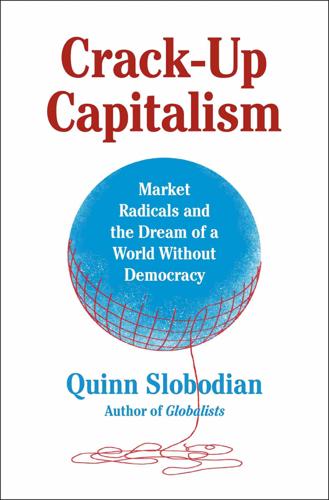
Crack-Up Capitalism: Market Radicals and the Dream of a World Without Democracy
by
Quinn Slobodian
Published 4 Apr 2023
Rather, if you were a driver, it pulled you along like a dog on a leash, punishing you for any deviation while preserving the fiction that you were a free contractor. The metaverse, as one critic has astutely observed, is probably best thought of as a cubicle.76 The private government of corporations has little space for the alternative visions of collectives, other than those that reproduce its own dominance. As one of the foundational texts of tech criticism notes, Silicon Valley often forgets its Hegel at its own risk.77 The German philosopher taught that the master is always dependent on the slave. Neither island nor cloud can exist without its underclass. Beyond the masses of app-mediated gig workers, even the vaunted artificial intelligence programs work only because of the often repetitive routines and efforts of labor both skilled and unskilled.78 From Honduras to Dubai, the waged service class is the easiest for the visionaries to forget and the hardest for them to live without.
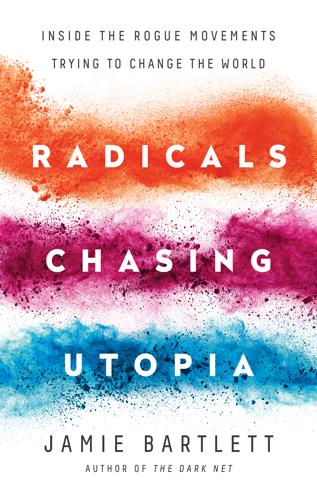
Radicals Chasing Utopia: Inside the Rogue Movements Trying to Change the World
by
Jamie Bartlett
Published 12 Jun 2017
.* And to get us in the right mindset, in the days leading up to the trip we all met in a secret Facebook group, where Stephen posted some recommended reading: The Book by Alan Watts (‘explaining man’s role in the universe as a unique expression of the total universe’, says the blurb) and Tao-te-Ching, the foundational text of Taoism, an ancient Chinese philosophy that emphasises naturalness, simplicity, spontaneity and ‘non-action’. This is the first Weekend Experience. We are Stephen’s guinea pigs. If it goes well, he tells the circle, he’ll put them on regularly. Perhaps every two weeks. Four hundred people have already expressed an interest, and that’s just from the Psychedelic Society’s sizeable mailing list.
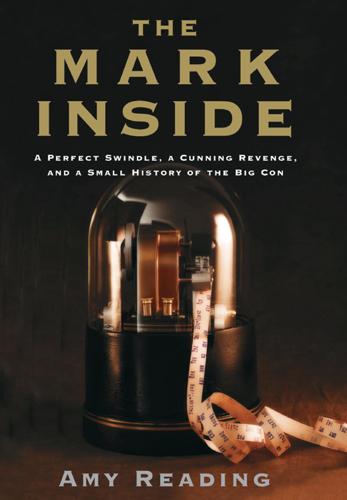
The Mark Inside: A Perfect Swindle, a Cunning Revenge, and a Small History of the Big Con
by
Amy Reading
Published 6 Mar 2012
Congress in March 1924, to Max Bentley for a magazine serial in McClure’s later that summer, to Gordon Hines for a newspaper serial that ran throughout Texas in 1927 and was republished as a book, to audiences around the nation in a lecture tour that retraced the steps of his hunt. His tale was worked up into a radio drama. Norfleet Productions began but never finished a silent film, starring J. Frank Norfleet as himself and supposedly directed by a relative of D. W. Griffith’s, but what film existed has been lost since the 1920s. The foundational text of Norfleet’s story is his autobiography, Norfleet: The Actual Experiences of a Texas Rancher’s 30,000-Mile Transcontinental Chase After Five Confidence Men. He wrote it in conjunction with an uncredited ghostwriter said to be the mother of Leif Erickson, who would later portray Big John Cannon in the Western television series The High Chaparral, and he published it with a regional press in 1924.
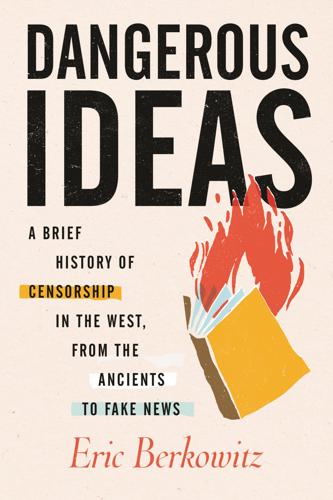
Dangerous Ideas: A Brief History of Censorship in the West, From the Ancients to Fake News
by
Eric Berkowitz
Published 3 May 2021
He also advocated free education, old-age and veterans’ pensions, free meals for the hungry, and much more. In his proposals, one can see the germ of a new idea: government should look after the well-being of its citizens, particularly the disadvantaged. The perfect text for its time, Rights of Man sold explosively, inspiring the formation of political societies and becoming one of the foundation texts of the English working-class movement.12 According to Leonard Levy, “If the hod carrier, prostitute, and common soldier could read, Paine was their favorite, and if they could not read, they could understand what Paine meant if someone read him aloud.” 13 Neither the sales figures nor the text’s resonance with the revolutionary rhetoric prevalent in France was lost on the British government, which responded with characteristic force.
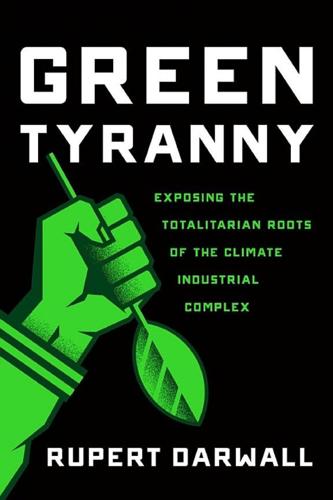
Green Tyranny: Exposing the Totalitarian Roots of the Climate Industrial Complex
by
Rupert Darwall
Published 2 Oct 2017
Nine months after Hitler came to power, Hueper wrote to the new government asking for a job and expressing a desire to renew his bonds with his native culture and people.61 Hueper returned to the United States in 1934 and in 1938 became the first director of the Environmental Cancer Section of the National Cancer Institute. But Hueper’s greatest impact on environmental health policy was through the foundational text of postwar environmentalism, making eight appearances in the cancer chapter of Rachel Carson’s Silent Spring. Under the menacing chapter heading “One in Every Four” (in 1955, the American Cancer Society had predicted that cancer would strike one in four Americans), Carson told a tale of industrial society releasing carcinogens into the environment.
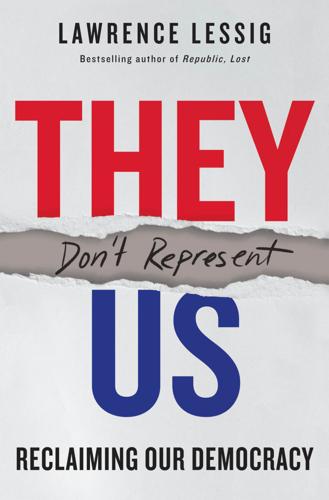
They Don't Represent Us: Reclaiming Our Democracy
by
Lawrence Lessig
Published 5 Nov 2019
Pew Research Center, The Public, the Political System and American Democracy (April 2018), 72, available at link #9. 8.Pew, Public, Political System and American Democracy, 1. CHAPTER 1: THE UNREPRESENTATIVE “THEM” 1.The idea of “representative” is of course not self-defining, and there have been many different conceptions across the history of democratic theory. The modern foundational text for mapping that conceptual range is Hanna F. Pitkin, The Concept of Representation (Berkeley:, University of California Press, 1967). In the present book, I move between two specific conceptions. The one is roughly consistent with Nicholas Stephanopoulos’s view of representative implicit in “alignment.”
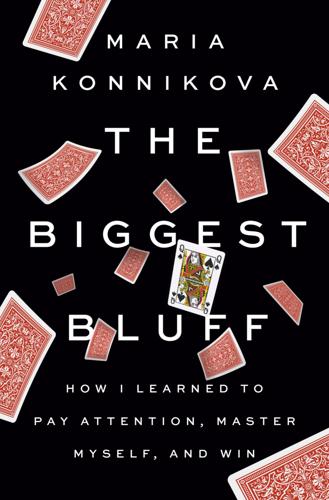
The Biggest Bluff: How I Learned to Pay Attention, Master Myself, and Win
by
Maria Konnikova
Published 22 Jun 2020
Von Neumann was one of the greatest mathematical and strategic minds of the twentieth century: he invented that little machine we all carry around with us, the computer (back then, it wasn’t so little), crafted the technology behind the hydrogen bomb, and is the father of game theory. Theory of Games is his foundational text, and here’s what I learned within its pages: the entire theory was inspired by a single game—poker. “Real life consists of bluffing, of little tactics of deception, of asking yourself what is the other man going to think I mean to do,” von Neumann wrote. “And that is what games are about in my theory.”

Careless People: A Cautionary Tale of Power, Greed, and Lost Idealism
by
Sarah Wynn-Williams
Published 11 Mar 2025
Another time he writes me saying, “I will personally buy you ‘something nice’ (niceness TBD by the beholder/buyer) if you responsibly spend” all your budget. As these things go, they’re all pretty mild, but his dirty Sanchez question is a new low, totally inappropriate, and I think, this is getting worse. This all hits as I’m stewing in anxiety about the citizenship test, desperately trying to memorize the foundational texts and the more perfect union that US citizens strive for but sometimes fall short of. All the aspirations they contain. I get the first question wrong. It’s the date of our wedding. Trying to start things off positively, the officer examining me allows me another guess. Wrong again. Cautiously, he offers me a third opportunity to tell him when my husband and I were married, and when I fail to guess correctly he moves on
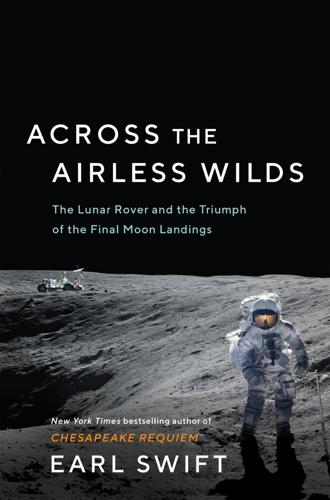
Across the Airless Wilds: The Lunar Rover and the Triumph of the Final Moon Landings
by
Earl Swift
Published 5 Jul 2021
He retired from the Canadian service a lieutenant colonel to become the civilian director of the Land Locomotion Research Laboratory. At the same time, Bekker was finishing his first book, Theory of Land Locomotion: The Mechanics of Vehicle Mobility. Published by the University of Michigan Press in 1956, it remains the foundational text for the study of vehicle-soil mechanics. Its bottom-line message—know your terrain in extreme detail, and adapt your vehicle’s form, size, weight, and power to suit it—was made in page after page of formulas that I would not attempt to explain here, even if I could. Suffice to say that it introduced the Bekker method, an integrated theory of overland travel, theoretically enabling engineers to assess an environment and mate it on paper with a vehicle that should work there.
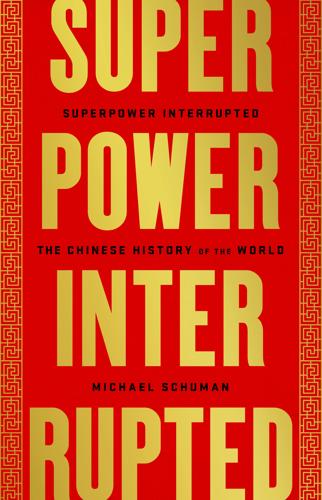
Superpower Interrupted: The Chinese History of the World
by
Michael Schuman
Published 8 Jun 2020
Taken together, Confucianism, Daoism, and other strands of Chinese philosophy form a corpus every bit as important to global civilization as the works of the Greek philosophers or the South Asian Vedas. What coalesced in central China during the Zhou period was a distinctly “Chinese” culture of shared rituals, social practices, foundational texts, political and mythic heroes, moral values, and philosophical principles that defined what being “Chinese” actually meant. The Chinese began to think of themselves as Chinese, with a common “Chineseness,” a bond that set them apart from others. The concept of “China” was being born. This “culture of ours,” as the Chinese came to call it, proved to be the glue that bound China’s society together as it dissolved politically.

The Bookshop: A History of the American Bookstore
by
Evan Friss
Published 5 Aug 2024
By 1747, he advertised nearly one hundred titles. Beyond the religious, school, and self-help books (including the popular Every Man His Own Lawyer—admittedly less frightening than Every Man His Own Doctor), he carried John Bunyan, John Milton, and John Locke. Locke’s An Essay Concerning Human Understanding was a foundational text of the Enlightenment and the Revolution to come. Meanwhile, the number of bookshops was growing, too. In fact, one opened right next door. It was run by James Read and his mother, Sarah Harwood Read, whose late husband was a cousin of Franklin’s mother-in-law (the itch-cream seller), confusingly also named Sarah Read.
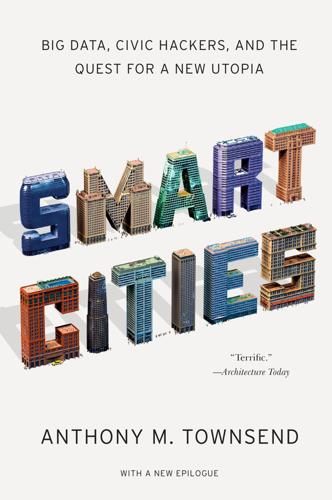
Smart Cities: Big Data, Civic Hackers, and the Quest for a New Utopia
by
Anthony M. Townsend
Published 29 Sep 2013
He first tried to convene a workshop with the candidates, but was overcome by what he describes as “enthusiastic data syndrome.” Things didn’t click. It was “the classic conversation the geek has with the business user,” Hirshberg says.2 The candidates didn’t get it. Evoking a left-wing hero of the 1960s, Abbie Hoffman, whose unforgettable Steal This Book was a foundational text for the Youth International Party (the “Yippies”), Hirshberg explains how he hacked the election. “I realized, all we need to do this summer is come up with ideas worth stealing. We need the political class to see this as a form of innovation.” More than four decades after the Summer of Love, in 2011 he proposed a Summer of Smart.
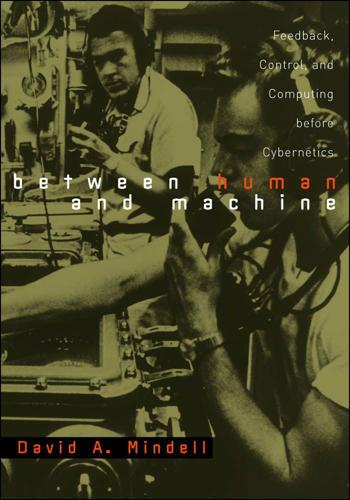
Between Human and Machine: Feedback, Control, and Computing Before Cybernetics
by
David A. Mindell
Published 10 Oct 2002
The neotechnic era was characterized by “mathematical accuracy, physical economy, chemical purity, surgical cleanliness,” 1 as well as electric light and novel materials like celluloid and Bakelite. The world of neotechnics evoked the streamlined America of the 1930s as idealized in corporate headquarters, film sets, and world’s fairs. I begin this history of control systems with Technics and Civilization because historians of technology consider it a foundational text and because it overlooks human-machine interaction. For all his progressive hopes and his insight into the human dimensions of technology, Mumford defined the neotechnic by its materials and sources of energy, not by its inhabitants. In the clean spaces of the neotechnic world, no people operated the machines.
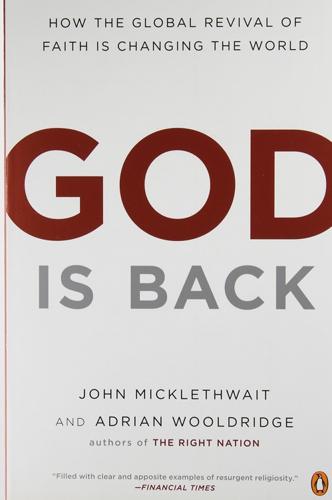
God Is Back: How the Global Revival of Faith Is Changing the World
by
John Micklethwait
and
Adrian Wooldridge
Published 31 Mar 2009
THE PROBLEM AT HOME Even more profound than the argument about the new wars of religion (and indeed the cause of some of these wars) is the issue of religion in the public square. Is there anything that we can learn about how to construct a constitutional regime that makes room for religion without sacrificing the fundamental principles of liberal pluralism? The answer is to be found in the foundation texts of modern liberalism and in the practical solution they inspired from America’s Founding Fathers. John Locke’s great contribution to the religion debate that raged throughout seventeenth century Europe was to argue that the problem lay not with religion itself but with the fusion of religion and power.
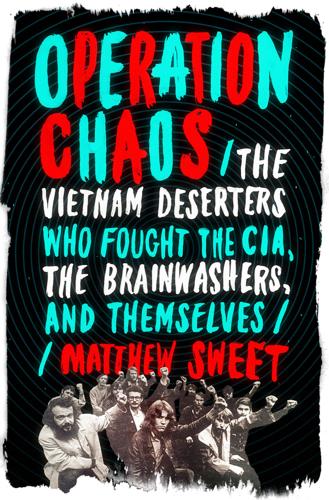
Operation Chaos: The Vietnam Deserters Who Fought the CIA, the Brainwashers, and Themselves
by
Matthew Sweet
Published 13 Feb 2018
He has no doubt that the CIA has alien bodies and alien equipment hidden in its labs, and that the last half century of U.S. foreign policy has been determined by these secrets. He and I exchanged a few emails on these subjects. I was surprised that he seemed not to know that a coauthor of The Roswell Incident, the foundational text of UFO conspiracies, had identified Harry Rositzke of Operation Chaos as the head of Langley’s aliens division. Craig was more expansive, I discovered, when the questions were asked by a true believer. One of his favorite interlocutors is a clairvoyant called Dr. Rita Louise, who offers “intuitive health readings” over the phone.
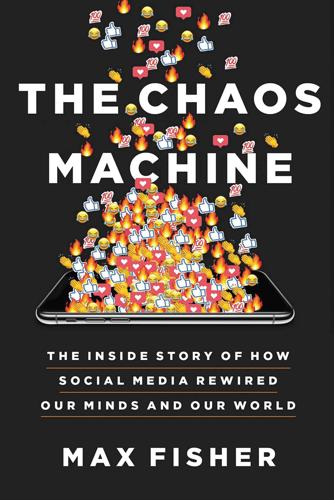
The Chaos Machine: The Inside Story of How Social Media Rewired Our Minds and Our World
by
Max Fisher
Published 5 Sep 2022
It was an ideology that quickly pervaded the broader culture, enshrined in films such as The Net and The Matrix, which portrayed programmers as the new counterculture vanguard, kung fu rebels who would break the chains of human bondage. The manifesto enshrined one ideal in particular: total freedom of speech. As on the WELL, this was to be the web’s mechanism for self-governance, first commandment, and greatest gift to the world. Its precepts remain the foundational text of the social media industry. “Our general counsel and CEO like to say that we are the free speech wing of the free speech party,” Twitter’s chief in the UK had said. Zuckerberg called free speech “the founding ideal of the company.” But it is the long-held ambition to finally realize a root-and-branch revolution that most animates the Valley’s underlying ideology, a prophecy that social media companies see themselves as destined to carry out.
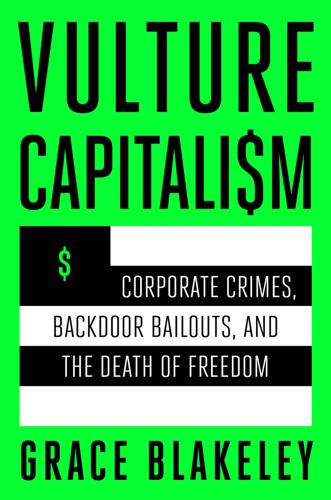
Vulture Capitalism: Corporate Crimes, Backdoor Bailouts, and the Death of Freedom
by
Grace Blakeley
Published 11 Mar 2024
They could achieve these aims through, for example, the enforcement of contracts, the establishment of a stable currency, and the provision of basic infrastructure. Adam Smith, one of the founders of the discipline that came to be known as political economy, drew on many areas of Locke’s thought to write his well-known work The Wealth of Nations, which remains a foundational text in mainstream economics.31 If Locke was the father of liberalism, then Smith was the “father of capitalism.”32 The role of government, in Smith’s view, was to protect free markets and private property—at home and abroad. Smith believed the best way for the state to protect free trade was to limit government intervention in the market, attacking mercantilists (a group we will meet in the next chapter) who sought state protection.
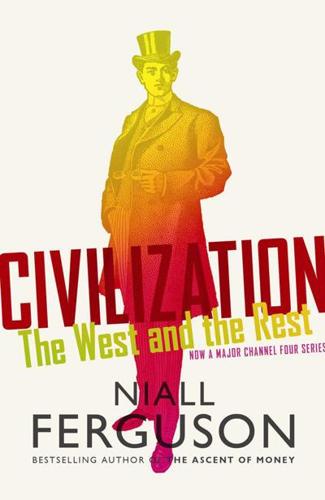
Civilization: The West and the Rest
by
Niall Ferguson
Published 28 Feb 2011
At its core, a civilization is the texts that are taught in its schools, learned by its students and recollected in times of tribulation. The civilization of China was once built on the teachings of Confucius. The civilization of Islam – of the cult of submission – is still built on the Koran. But what are the foundational texts of Western civilization, that can bolster our belief in the almost boundless power of the free individual human being?* And how good are we at teaching them, given our educational theorists’ aversion to formal knowledge and rote-learning? Maybe the real threat is posed not by the rise of China, Islam or CO2 emissions, but by our own loss of faith in the civilization we inherited from our ancestors.
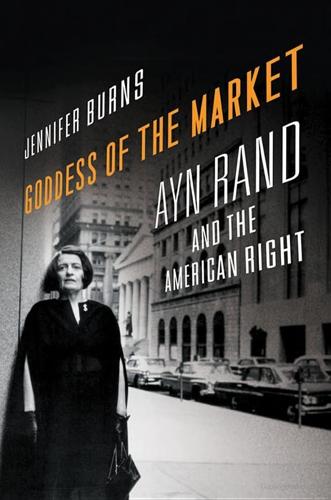
Goddess of the Market: Ayn Rand and the American Right
by
Jennifer Burns
Published 18 Oct 2009
At the suggestion of Robert Hessen, a Collective member in the bookselling business, the book included a small tear-out card that readers could send back to receive additional information about Rand’s philosophy. Readers drawn to her ideas would find a thriving Objectivist universe, complete with foundational texts, celebrities, and opportunities for advanced study. Even those who did not return the card now learned there was a community and a movement centered around Rand.59 Taken together, NBI and Rand’s willingness to directly engage current events suggested a new way to be on the right. In 1955 William F.
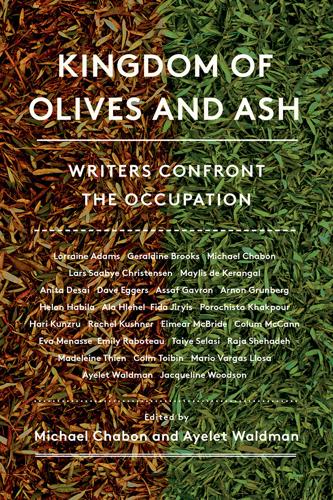
Kingdom of Olives and Ash: Writers Confront the Occupation
by
Michael Chabon
Published 29 May 2017
They passed out stickers that said kahane was right, in reference to the late, infamous orthodox rabbi Meir Kahane, a member of the Knesset who endorsed annexing the West Bank and the Gaza Strip while expelling the Palestinians, along with a lot of other anti-Arab ideas that brought Israel to outlaw his political groups. In spirit, he reminded me of Donald Trump, who was scapegoating immigrants and agitating for a wall in an effort to “make America great again” back home. Although Kahane fell from grace thirty years ago, his writings have carried on as foundational texts for most of today’s militant and extreme-right political groups in Israel. Some of Kahane’s manifestos were on sale at the parade, including They Must Go, a screed whose title pretty much speaks for itself. Many parade-goers wore T-shirts silk-screened with images of a rebuilt Jewish temple, prophesied in the Book of Ezekiel as the eternal dwelling place of the God of Israel on Jerusalem’s Temple Mount.
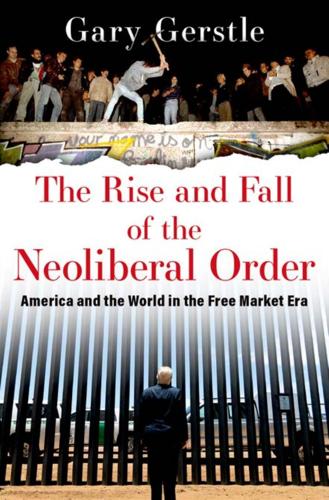
The Rise and Fall of the Neoliberal Order: America and the World in the Free Market Era
by
Gary Gerstle
Published 14 Oct 2022
But one of these New Right-New Left collaborations endured: a book that Rothbard coedited with then New Leftist Ronald Radosh, A New History of Leviathan: Essays on the Rise of the American Corporate State.65 In this book, published by a large commercial house in 1972, Rothbard and Radosh brought together a glittering constellation of first-generation New Left scholars—William Appleman Williams, Martin Sklar, and James Gilbert among them—with Rothbard-style libertarians. The resulting volume of essays became a foundational text for a new vector of interpretation, labeled the “corporate liberal school,” that would significantly influence the writing of American political history across the next quarter century.66 The third point of intersection would be slower to materialize but more consequential than the first two: one that began to take shape in Silicon Valley, where new forms of venture capitalism were linking up with young engineers imbued with a New Left, and sometimes New Age, belief in the liberating and transformative power of cyberspace.
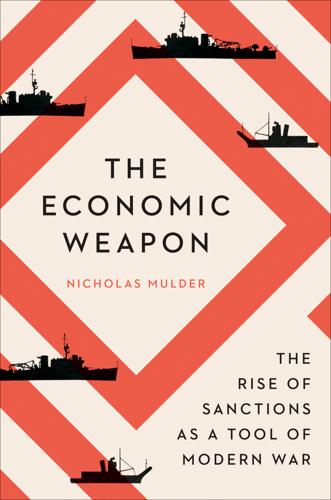
The Economic Weapon
by
Nicholas Mulder
Published 15 Mar 2021
Were interwar internationalists wrong to believe that economic pressure could fulfill this role? Many contemporary commentators and historians have depicted League sanctions as weak and ineffective, arguing that they were merely a way to signal commitment to peace and condemn aggression.3 E. H. Carr’s foundational text of international relations realism, The Twenty Years’ Crisis (1939), held that the League’s sanctions were misguided since the countries imposing them were not prepared to use military force as an ultimate backstop.4 In his account of the Great Depression as a failure of hegemonic stability, Charles Kindleberger claimed that the sanctions lacked “any lead from the United States or Britain” and therefore “failed.”5 Zara Steiner’s authoritative work on interwar international history argues that the British government publicly affirmed its support for sanctions but lacked the resolve to carry them out.6 The implication of these verdicts is clear: preventing the slide into world war in the 1930s stood or fell with the success of sanctions, and in this regard the League proved too feeble.
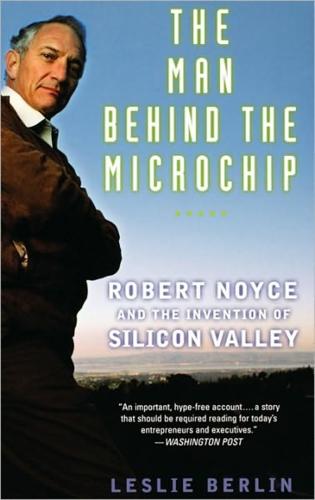
The Man Behind the Microchip: Robert Noyce and the Invention of Silicon Valley
by
Leslie Berlin
Published 9 Jun 2005
Noyce also took a Modern Algebra course in the math department.11 The two-semester Quantum Theory of Matter course taught by the imperious John Slater was one of Noyce’s favorites. Slater would enter the room on the last ring of the bell announcing the start of class. After quickly greeting the students, he would distribute the blue sheets of notes he had typed up the night before—they would soon be published in a book that became one of the field’s foundational texts—and walk briskly to the front of the room. Slater then turned his back on the class, faced the blackboard, and began to lecture in ringing, complete paragraphs, his precise script snaking its chalky way across the board. The lecture would continue in this manner— occasionally punctuated by Slater’s calling out a question (still not turning around)—until his writing reached the lower right-hand corner of the board.
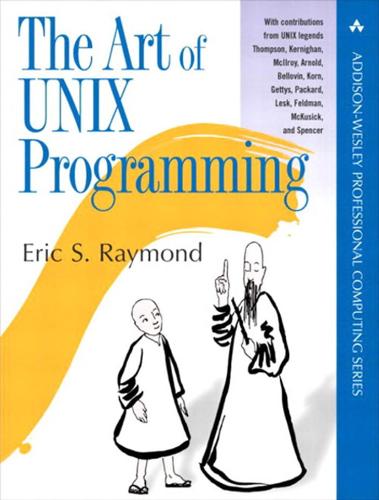
The Art of UNIX Programming
by
Eric S. Raymond
Published 22 Sep 2003
Because we write software to solve problems, we cannot completely detach from the problems — but it is well worth the mental effort to see how many preconceptions you can throw away, and whether the design becomes more compact and orthogonal as you do that. Possibilities for code reuse often result. Jokes about the relationship between Unix and Zen are a live part of the Unix tradition as well.[45] This is not an accident. * * * [43] In the foundation text on this topic, Refactoring [Fowler], the author comes very close to stating that the principal goal of refactoring is to improve orthogonality. But lacking the concept, he can only approximate this idea from several different directions: eliminating code duplication and various other “bad smells” many of which are some sort of orthogonality violation

The Zionist Ideas: Visions for the Jewish Homeland—Then, Now, Tomorrow
by
Gil Troy
Published 14 Apr 2018
His essay proved prescient, as identity building through Israel experiences became mainstreamed more than two decades later, thanks to Taglit-Birthright Israel and other programs. And his collection of essays, The Zionist Idea, proved enduring, providing generations of Jews and non-Jews with the foundational texts of a movement Hertzberg helped shape—and always challenged to grow. Impasse: A Movement in Search of a Program (Commentary, October 1, 1949) As a Zionist, I face an impasse. Without passing moral judgment on either myself or Israel, I know that I am something other than the Israeli, by upbringing, by my allegiance to America, and by my desire to be part of the cultural traditions of the Western world. . . .
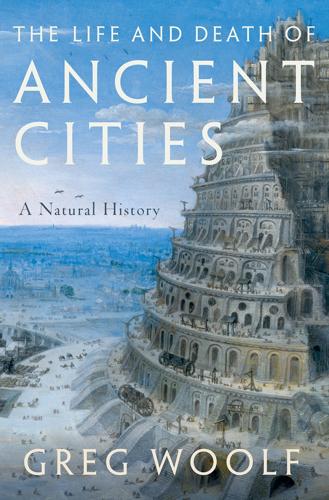
The Life and Death of Ancient Cities: A Natural History
by
Greg Woolf
Published 14 May 2020
Some of Pindar’s odes celebrated victors from Sicily and cities in southern Italy. His first Pythian Ode, composed in 470 b.c.e. just after the Persian Wars, celebrated King Hieron of Syracuse. This is close to the date when Aeschylus was composing the Persians, a tragedy based on the war against Xerxes and a foundational text of ancient orientalism.31 From these poems we know that by the fifth century at least myths were circulating about heroes and founding fathers, and some recent traditions too. The first Pythian Ode associated the western Greeks with contemporary wars against the (Persian) barbarian by recalling victories against Phoenicians and Etruscans.
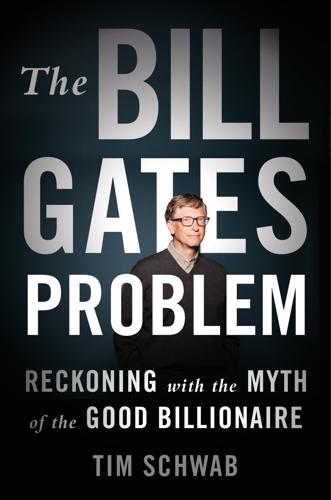
The Bill Gates Problem: Reckoning With the Myth of the Good Billionaire
by
Tim Schwab
Published 13 Nov 2023
losing control: Muneera A Rasheed, “Navigating the Violent Process of Decolonisation in Global Health Research: A Guideline,” Lancet Global Health 9, no. 12 (December 1, 2021): e1640–41, https://doi.org/10.1016/S2214-109X(21)00440-X. CHAPTER 11: BLOAT lead to even more confusion: Nat Levy, “Judge: Former Bill & Melinda Gates Tech Leader Entitled to $4.9M in Dispute with Foundation,” GeekWire, October 9, 2018, https://www.geekwire.com/2018/judge-former-bill-melinda-gates-tech-leader-entitled-4-9m-damages-dispute-foundation/#:~:text=A%20King%20County%20judge%20has,as%20a%20%E2%80%9Cbroken%20promise.%E2%80%9D. appellate court: Patrick Dorrian, “Gates Foundation Breached Contract of ‘Chief Digital Officer,’” Bloomberg Law, November 17, 2020, https://news.bloomberglaw.com/daily-labor-report/gates-foundation-breached-contract-of-chief-digital-officer; John O’Brien, “Gates Foundation Successfully Argues Against $4.6M Verdict for Fired Employee, but Recalculation Ordered,” Legal Newsline, November 19, 2020, https://legalnewsline.com/stories/565415071-gates-foundation-successfully-argues-against-4–6m-verdict-for-fired-employee-but-recalculation-ordered.
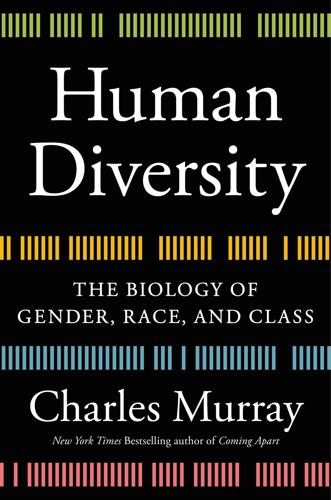
Human Diversity: The Biology of Gender, Race, and Class
by
Charles Murray
Published 28 Jan 2020
Wilson, Herrnstein was a behaviorist who did not go off the deep end. 13. Murray (1984). 14. Pinker (2002): viii. 15. Hamilton (1964); Trivers (1972). 16. Wilson (1975); Dawkins (1976). 17. Tooby and Cosmides (1992). The book in which it appeared, Barkow, Cosmides, and Tooby (1992), is considered a foundational text for evolutionary biology. 18. Stewart-Williams (2018): Appendix A. 19. von Hippel and Buss (2017). 20. For a systematic discussion of the science of evolutionary psychology, see Low (2015). For two technical book-length accounts of the sociobiology controversy presenting the arguments on both sides, see Segerstråle (2000) and Alcock (2001). 21.
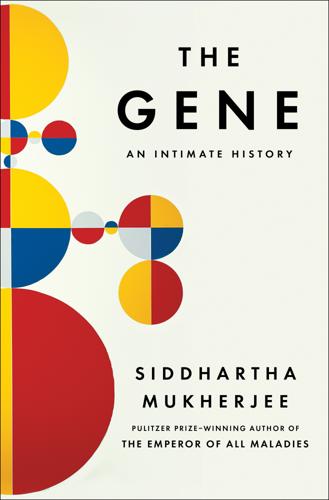
The Gene: An Intimate History
by
Siddhartha Mukherjee
Published 16 May 2016
Aristotle was not a particularly ardent champion of women, but he nevertheless believed in using evidence as the basis of theory building. He set about dissecting the merits and problems of “spermism” using experimental data from the biological world. The result, a compact treatise titled Generation of Animals, would serve as a foundational text for human genetics just as Plato’s Republic was a founding text for political philosophy. Aristotle rejected the notion that heredity was carried exclusively in male semen or sperm. He noted, astutely, that children can inherit features from their mothers and grandmothers (just as they inherit features from their fathers and grandfathers), and that these features can even skip generations, disappearing for one generation and reappearing in the next.
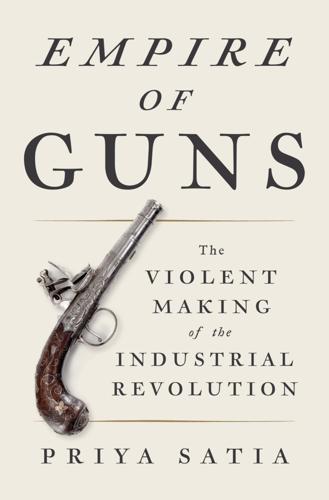
Empire of Guns
by
Priya Satia
Published 10 Apr 2018
His influence spread, among soldiers and ex-soldiers especially. After the Restoration, the inchoate and persecuted Quaker sect developed its structure of local meeting groups. Fox went to the Americas, too. In 1676, one of his Scottish adherents, Robert Barclay, penned the Apology for the True Christian Divinity, which became the foundational text of Quaker doctrine and practice, including the testimony against all wars. Quakers were forbidden to bear arms or send others in their place or give money for the purchase of military equipment or attire. Rejection of war was foundational to the Quaker sect. And yet, as Galton Jr. pointed out in his defense of 1795, the sect had passed no comment on his family business as it had unfolded over generations.
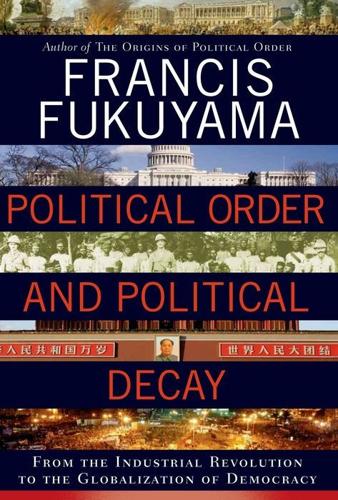
Political Order and Political Decay: From the Industrial Revolution to the Globalization of Democracy
by
Francis Fukuyama
Published 29 Sep 2014
In the nineteenth century, many serious intellectuals were willing to make thoughtful arguments against a universal franchise, or the principle of one man, one vote. It is worth reviewing some of those arguments, since a number of them remain salient even if few people are willing to articulate them openly today. One of the most sustained critiques of democracy was provided by the philosopher John Stuart Mill, whose On Liberty has been a foundational text for liberals since its publication in 1859. In Thoughts on Parliamentary Government, published in 1861 before the Second Reform Act, Mill made several arguments against a universal and equal franchise. He began with the classic Whig argument that “the assembly which votes the taxes, either general or local, should be elected exclusively by those who pay something towards the taxes imposed.”6 The idea that only taxpayers should vote was the flip side of the principle “no taxation without representation” that was the motto of both the English and American Revolutions.
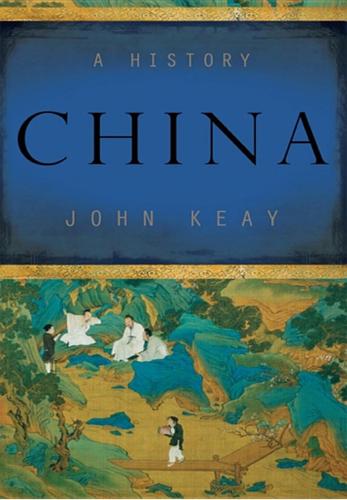
China: A History
by
John Keay
Published 5 Oct 2009
The other two of the four, also heavily abbreviated and glossed, were the Analects of Confucius and the Mengzi of Mencius, the Master’s acknowledged successor. Forming ‘a coherent humanistic vision’ and stressing the humane and socially responsible side of Confucianism, the Four Books would soon take priority over all the other classics and as of the fourteenth century become the foundation texts for both primary and civil service examinations. Memorised by millions, they ‘exerted far greater influence on Chinese life and thought over the next six hundred years than any other works’.8 Surveying the historical record, Zhu Xi was equally sparing. The mythical Five Emperors of prehistoric times were unassailably virtuous, likewise the pre-imperial Xia and Shang dynasties and of course the grand old Duke of Zhou.
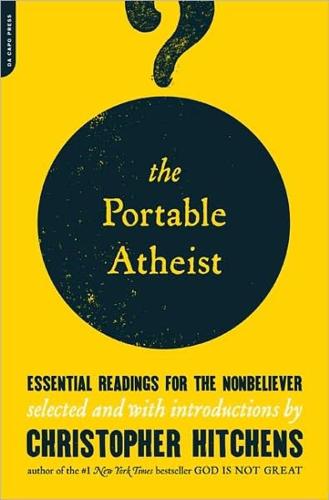
The Portable Atheist: Essential Readings for the Nonbeliever
by
Christopher Hitchens
Published 14 Jun 2007
On the contrary, the better we are able to think of him as a man, while we are obliged to disapprove him as a theologian, the stronger will be the evidence for our conviction, that the tendency towards good in human nature has a force which no creed can utterly counteract, and which ensures the ultimate triumph of that tendency over all dogmatic perversions. Autobiography CHARLES DARWIN The founder of modern biology (1809–1882) was another of those who did not abandon his religious views with a light heart. At Cambridge University he was proud to occupy the same rooms as had been lived in by William Paley, whose book Theology was the foundation text of the argument from design. Darwin even considered the priesthood as a young man, and embarked on his study of the natural world in the belief that it demonstrated the glory of God. Having voyaged to South America and the Galapagos Islands on board the good ship Beagle, however, he found himself confronting the evidence of evolution by natural selection.
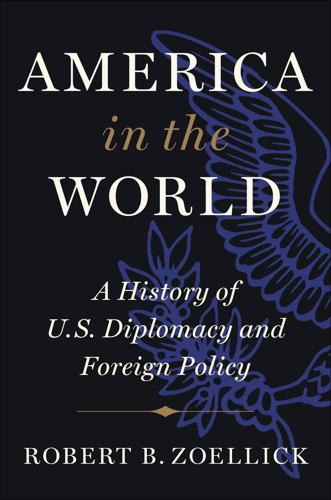
America in the World: A History of U.S. Diplomacy and Foreign Policy
by
Robert B. Zoellick
Published 3 Aug 2020
In fact, Kissinger keeps impressive company. In 1951, George Kennan, the author of “containment” at the start of the Cold War, delivered a series of lectures at the University of Chicago on what he considered the sorry state of American foreign policy. He published these discourses as American Diplomacy, 1900–1950, a foundational text for the realist tradition. Kennan decried America’s “legalistic-moralistic approach” to world affairs, driven by the “emotionalism” and the “erratic and subjective nature” of American public opinion. He viewed the real work of diplomacy as “taking the awkward conflicts of national interest and dealing with them on their merits with a view to finding solutions least unsettling to the stability of international life.”15 At the turn of the twenty-first century, Walter McDougall reprised the cautionary wisdom of “realism” in his Promised Land, Crusader State.
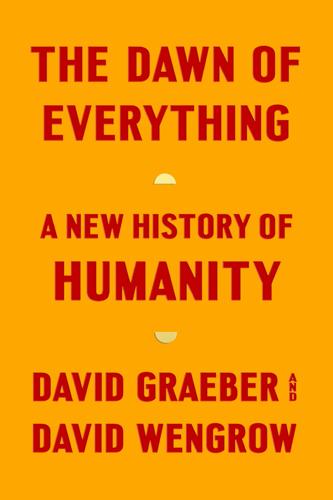
The Dawn of Everything: A New History of Humanity
by
David Graeber
and
David Wengrow
Published 18 Oct 2021
The people think only of that, they talk about nothing else, and all their cabins are filled with their dreams…Some have been known to go as far as Quebec, traveling a hundred and fifty leagues, for the sake of getting a dog, that they had dreamed of buying there…’. Wallace argues that this is a direct psychological consequence of the stoicism and importance of personal freedom and autonomy in Iroquoian societies. See also Blau 1963; Graeber 2001: 136–9. 75. The earlier dates are in reference to an eclipse mentioned in the foundation text (Mann and Fields 1997; cf. Henige 1999; Snow 1991; Atkins 2002; Starna 2008). 76. For the general state of archaeological understanding see Tuck 1978; Bamann et al. 1992; Engelbrecht 2003; Birch 2015. On the Ontario inception of maize cultivation: Johansen and Mann 2000: 119–20. 77. Mann and Fields 1997: 122–3; Johansen and Mann 2000: 278–9. 78.
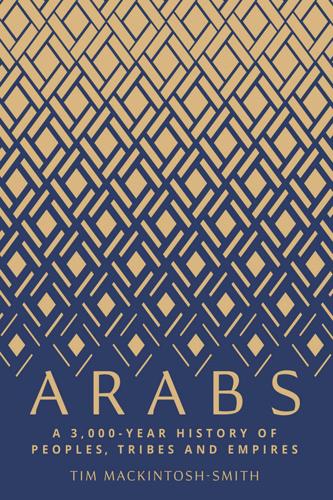
Arabs: A 3,000 Year History of Peoples, Tribes and Empires
by
Tim Mackintosh-Smith
Published 2 Mar 2019
One piece of evidence for such empowerment in the fourth century is a tomb inscription discovered in 1901 near the fortress of al-Namarah, 120 kilometres south-east of Damascus. Written in ‘a developed form of the Nabataean alphabet, well on its way to becoming Arabic’, it is no easy read. But despite the possible variants and cruces, it is a foundational text of Arab history as important as that first Assyrian mention of Arabs. The Namarah epitaph is not only one of the earliest in what was becoming the standard, unified Arabic; it is also the first known mention of Arabs as such, by themselves, in their own language. ‘This’, it begins, ‘is the monument of Imru’ al-Qays son of Amr, king of all the Arabs . . .’
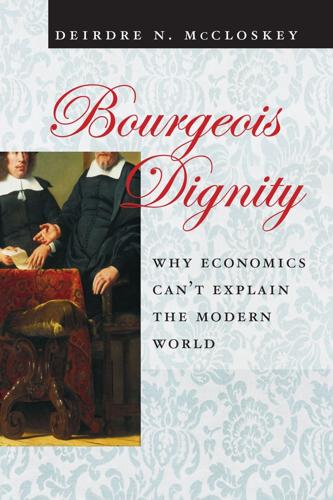
Bourgeois Dignity: Why Economics Can't Explain the Modern World
by
Deirdre N. McCloskey
Published 15 Nov 2011
It may be suggested here that this point will be found some rather long way down the [nineteenth] century.”11 Gape-worthy steam power in Britain, for example, increased by a factor of fully ten from 1870 to 1907, a hundred years after the mills, most at first propelled by water, first enter British consciousness.12 And in 1850 the bulk of goods and services, Clapham showed, were still provided in traditional ways outside the mills. Think of making chairs or making beds. A foundational text in Acemoglu and Robinson’s tale, they say, is a book by Paul Mantoux (1877–1956), frequently reprinted (which was a publishing decision, not a testament to scientific currency). “Our overview of the economic history of the Industrial Revolution,” they declare forthrightly, “rests on Mantoux (1961).”13 Note the date given.
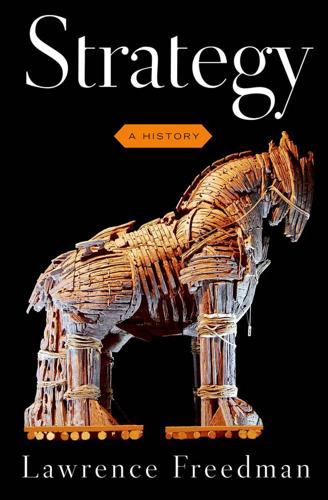
Strategy: A History
by
Lawrence Freedman
Published 31 Oct 2013
Jean-Paul Carvalho, “An Interview with Thomas Schelling,” Oxonomics 2 (2007): 1–8. 15. Brodie, “Strategy as a Science,” 479 (see chap. 12, n. 7). One possible reason was the skepticism of Jacob Viner, professor of economics at Chicago and Brodie’s mentor. Viner’s 1946 essay on the implications of nuclear weapons was one of the foundation texts of the theory of deterrence and clearly influenced Brodie. 16. Bernard Brodie, “The American Scientific Strategists,” The Defense Technical Information Center (October 1964): 294. 17. Oskar Morgenstern, The Question of National Defense (New York: Random House, 1959). 18. Bruce-Briggs, Supergenius, 120–122; Irving Louis Horowitz, The War Game: Studies of the New Civilian Militarists (New York: Ballantine Books, 1963). 19.